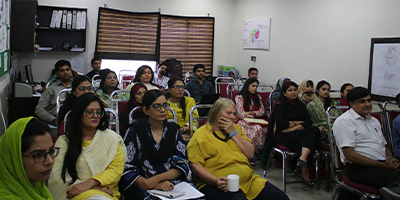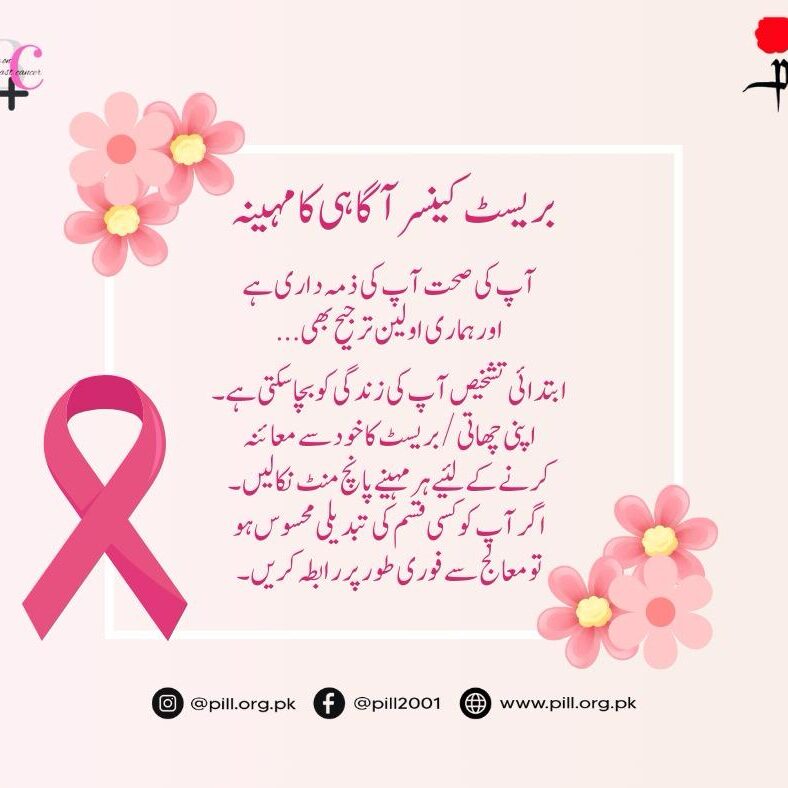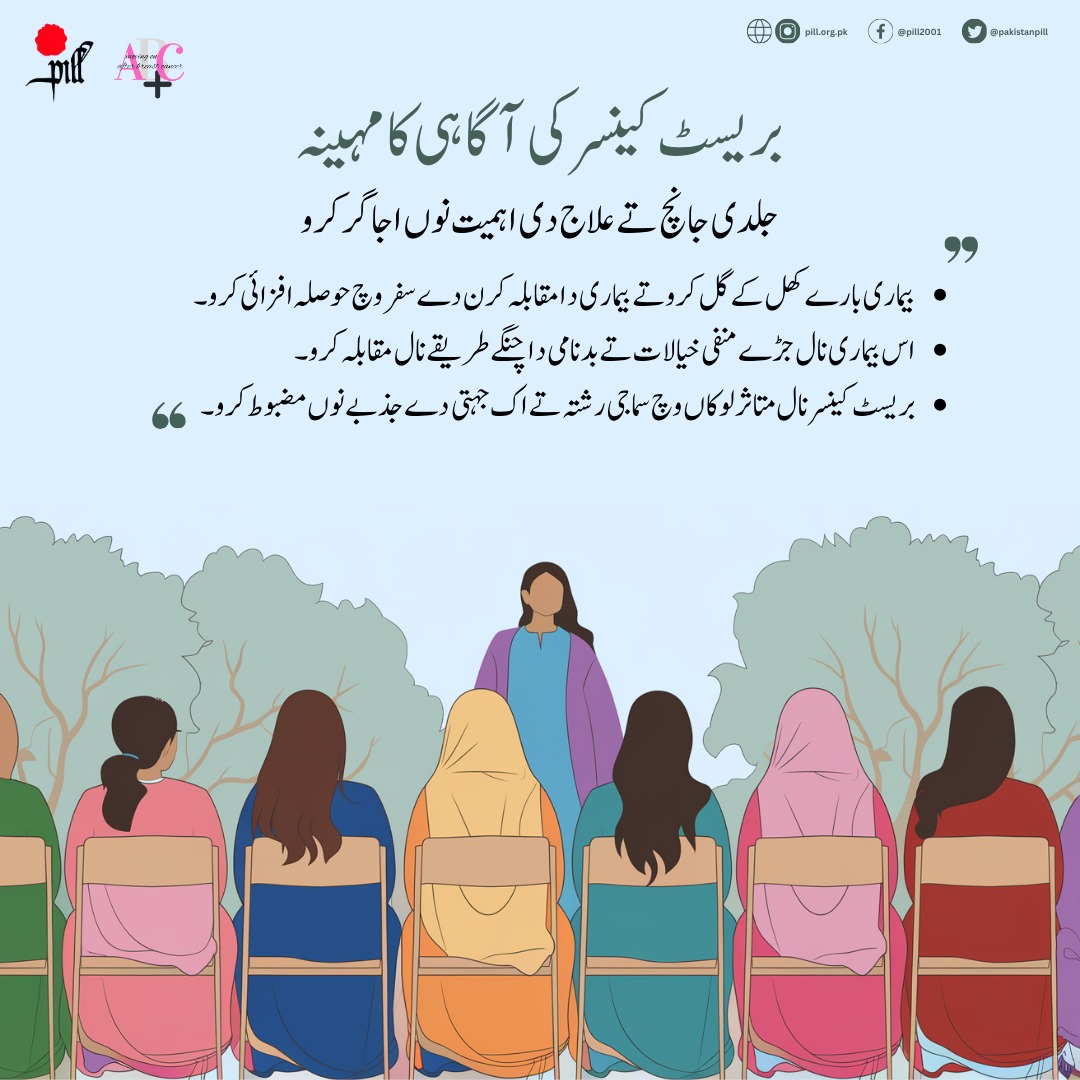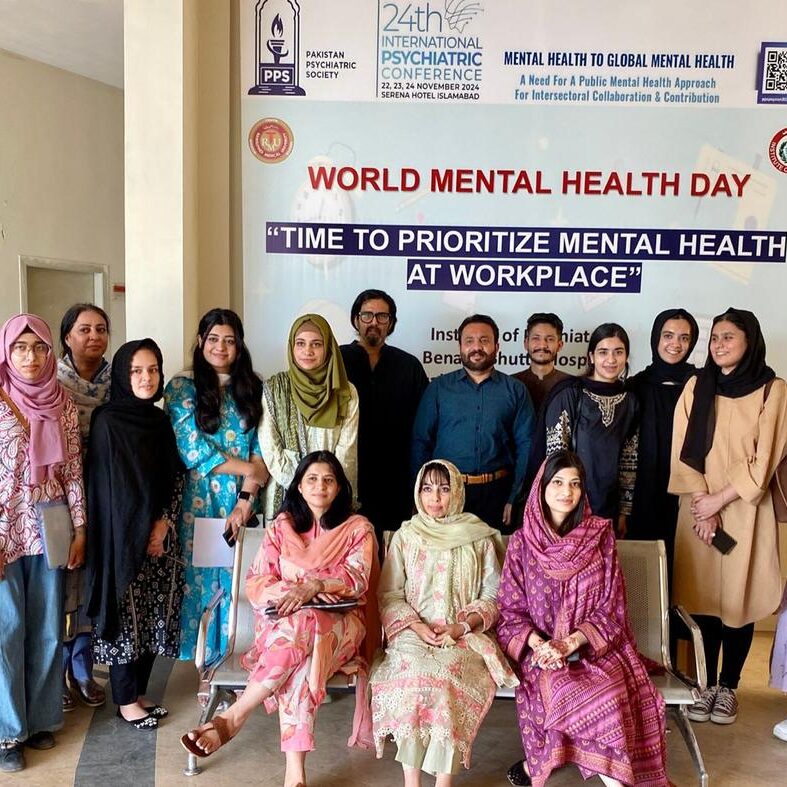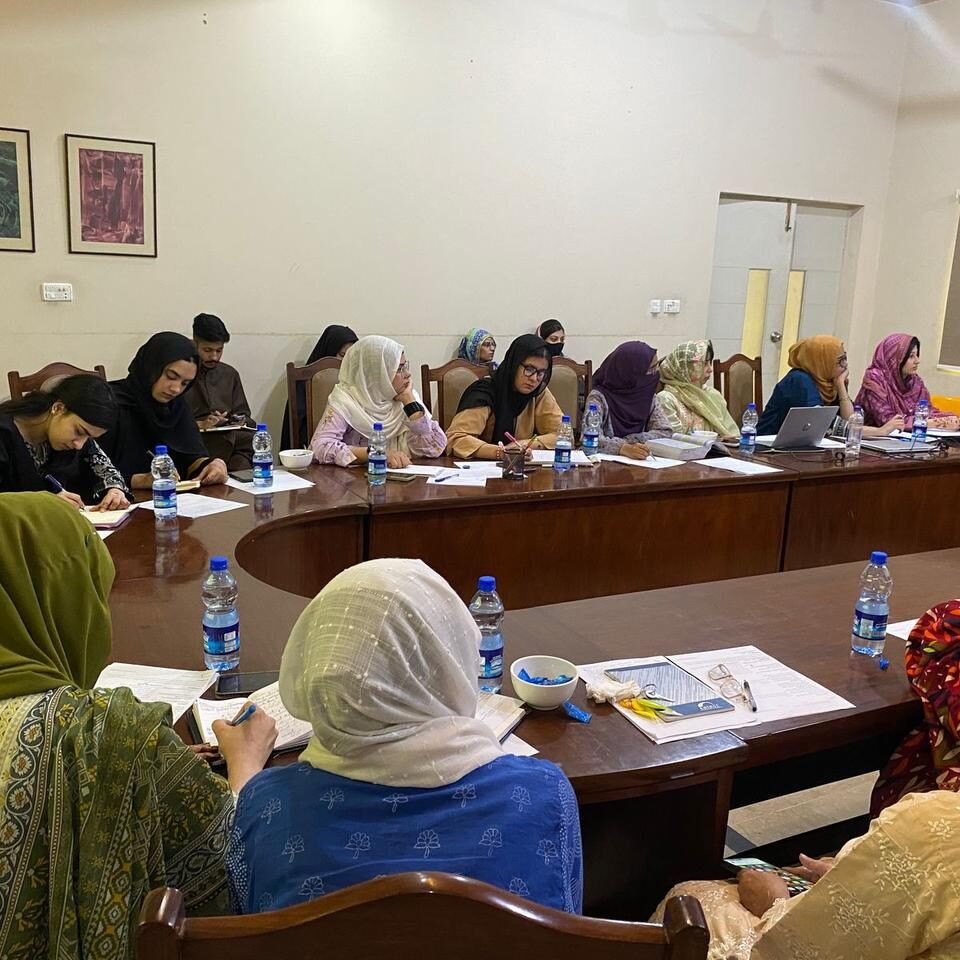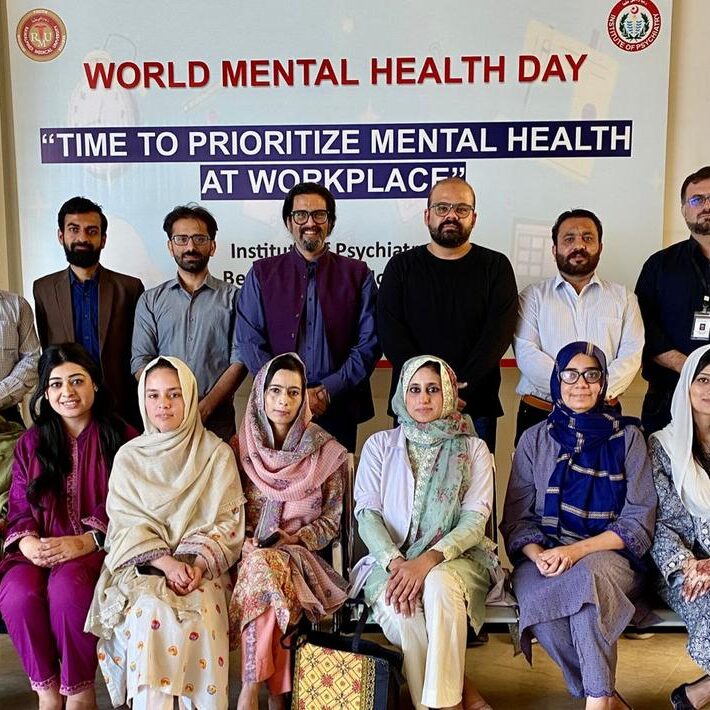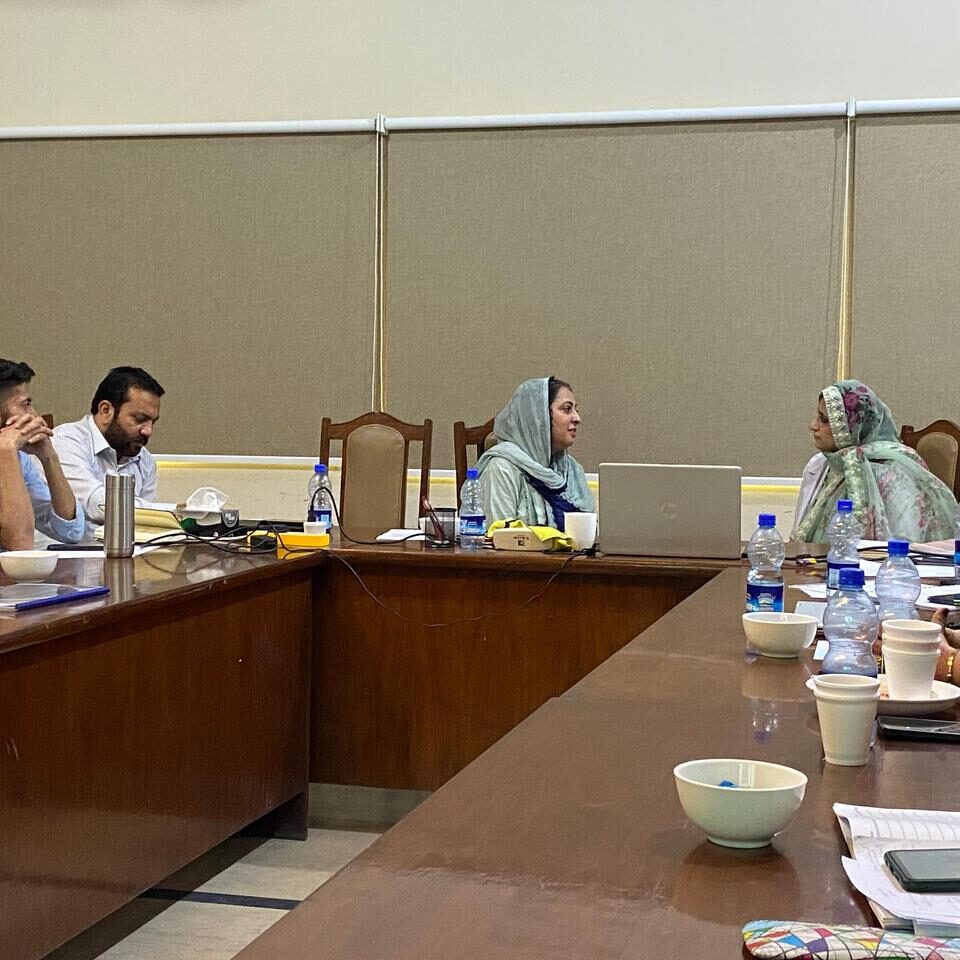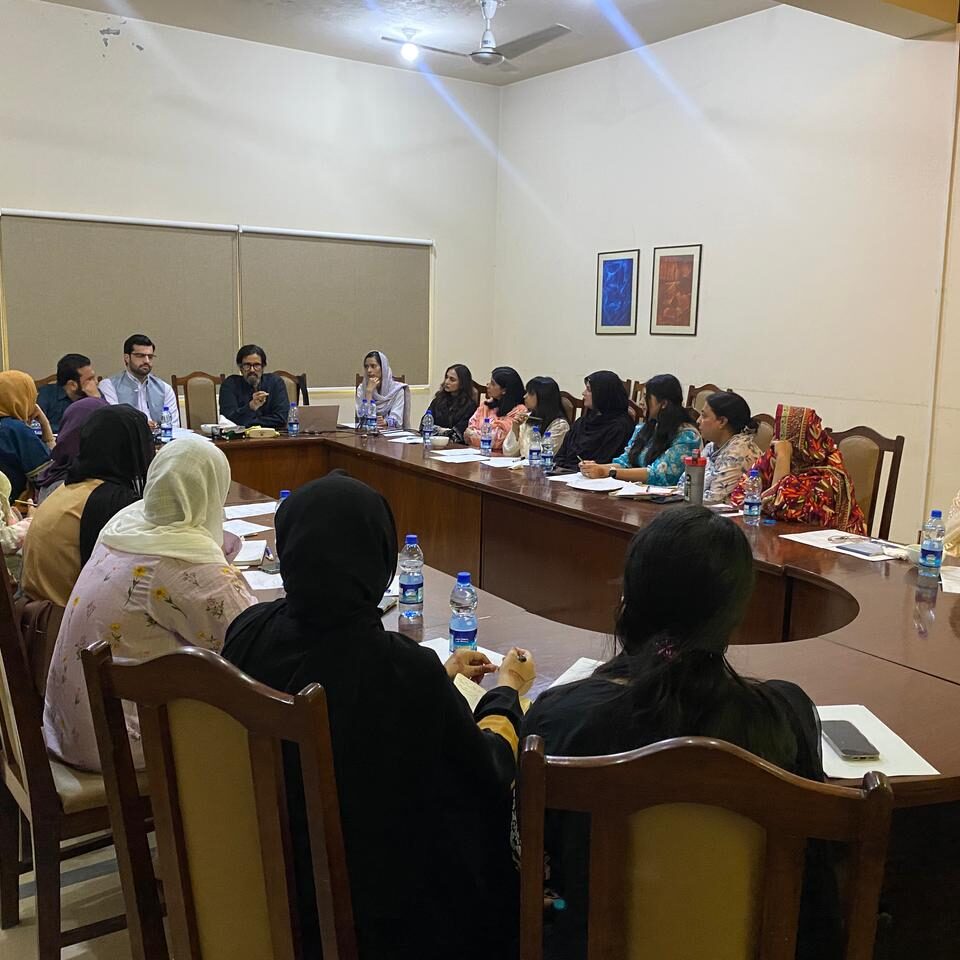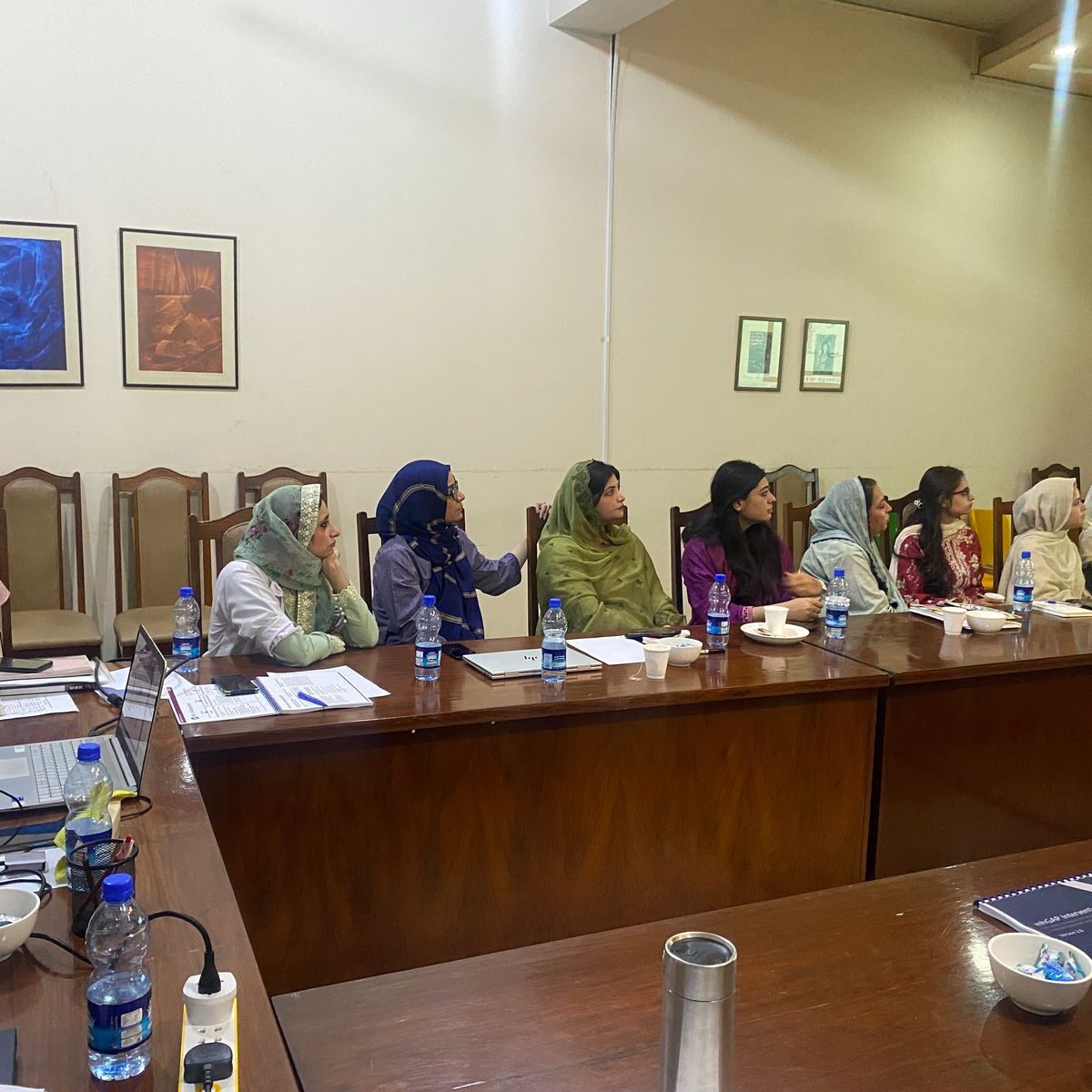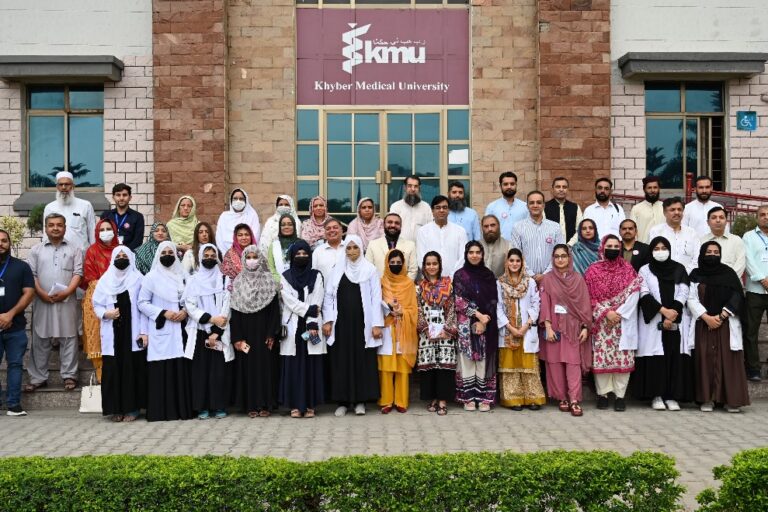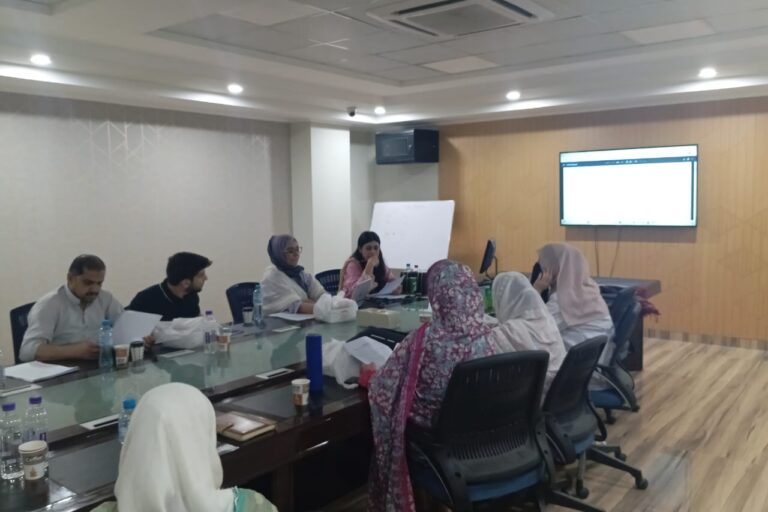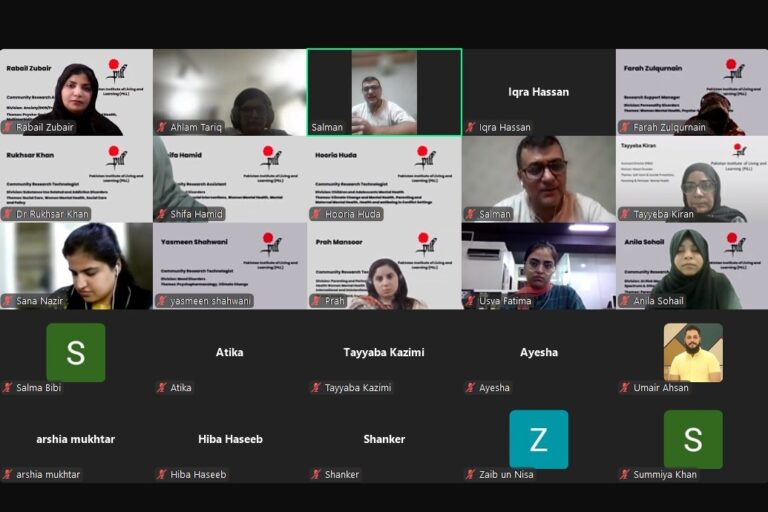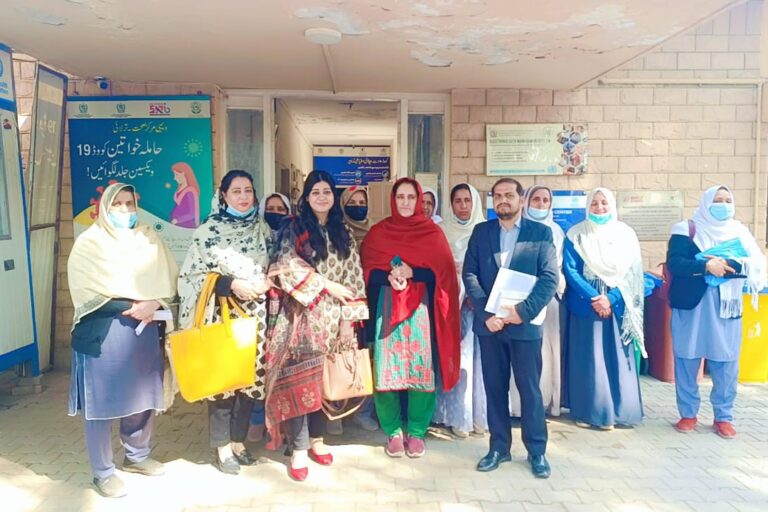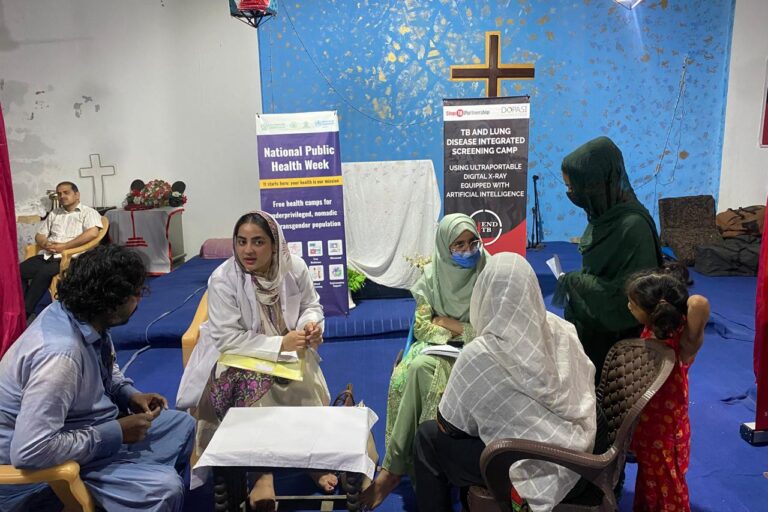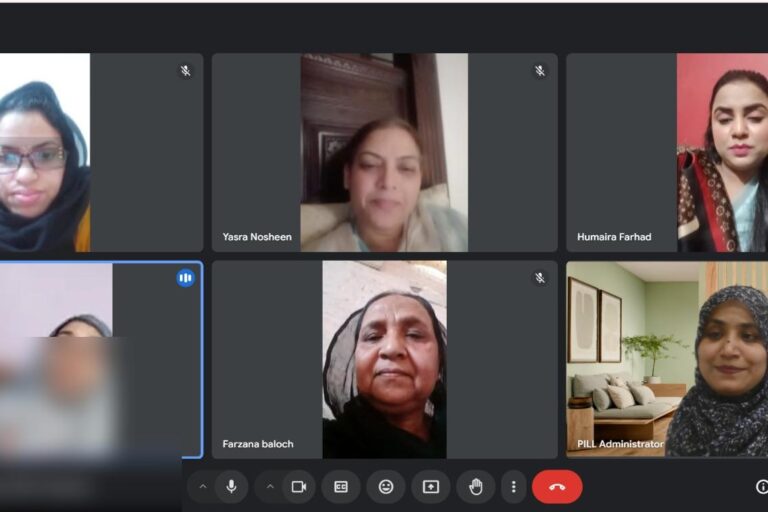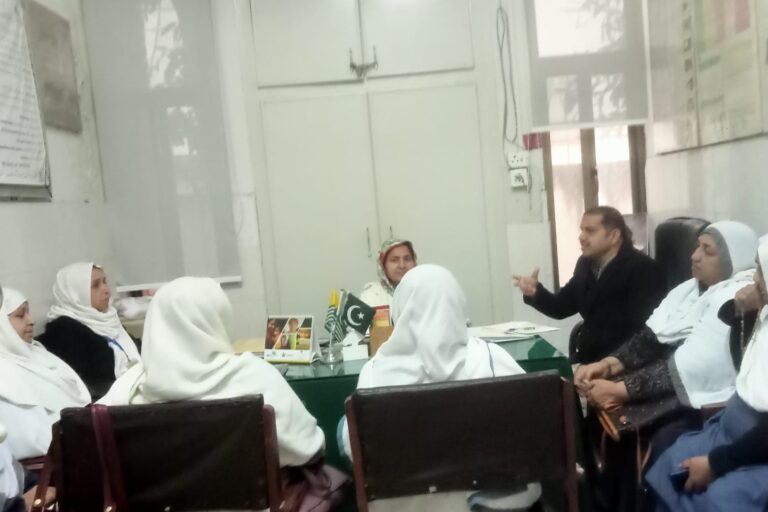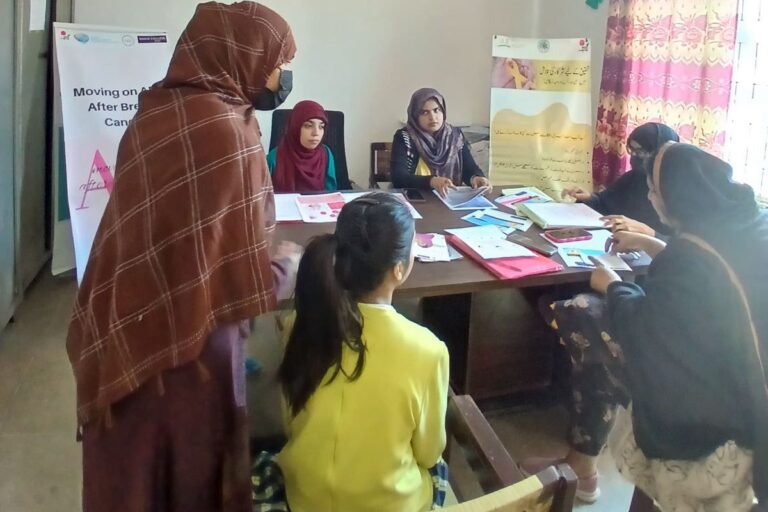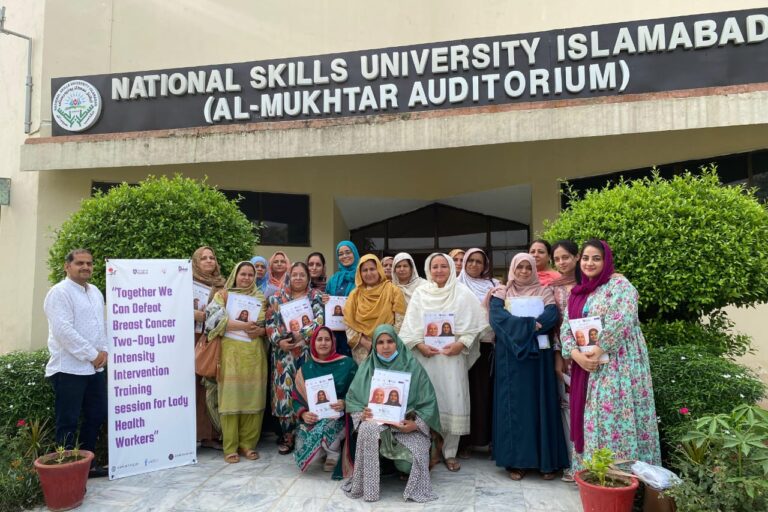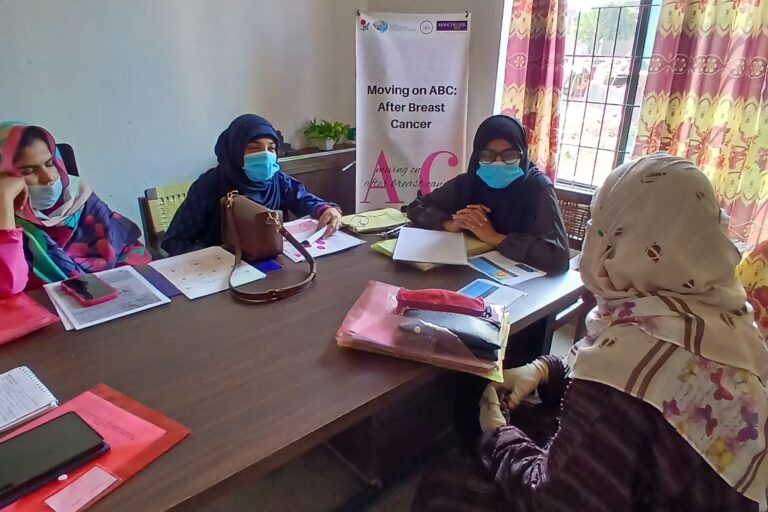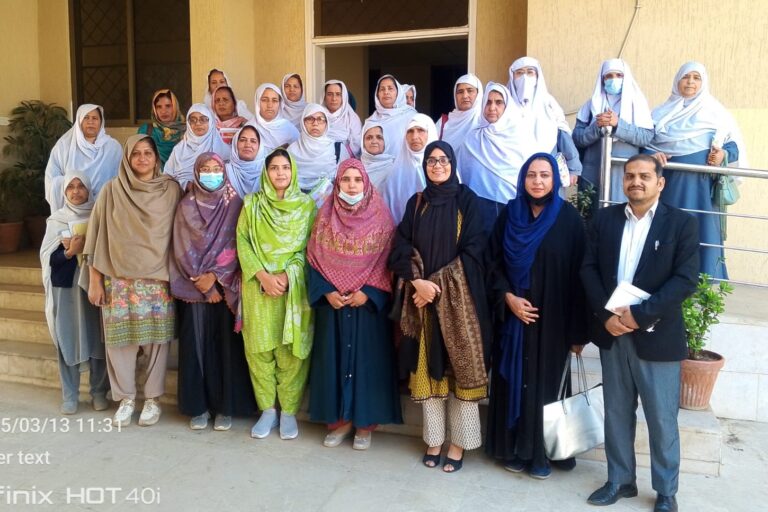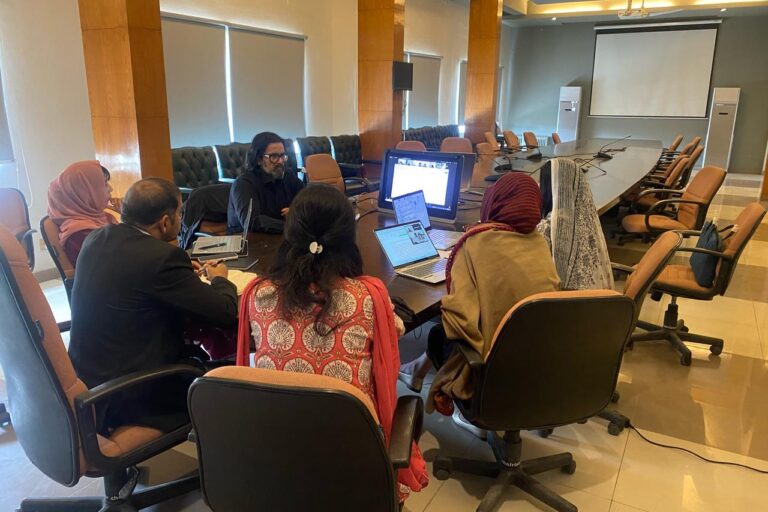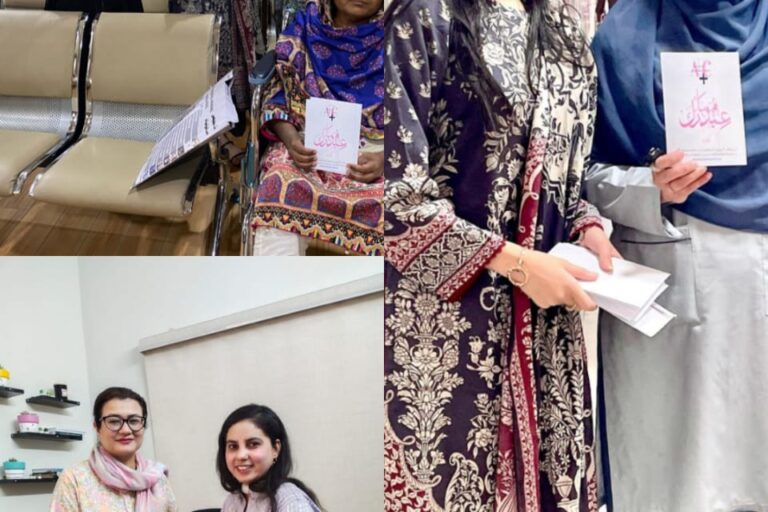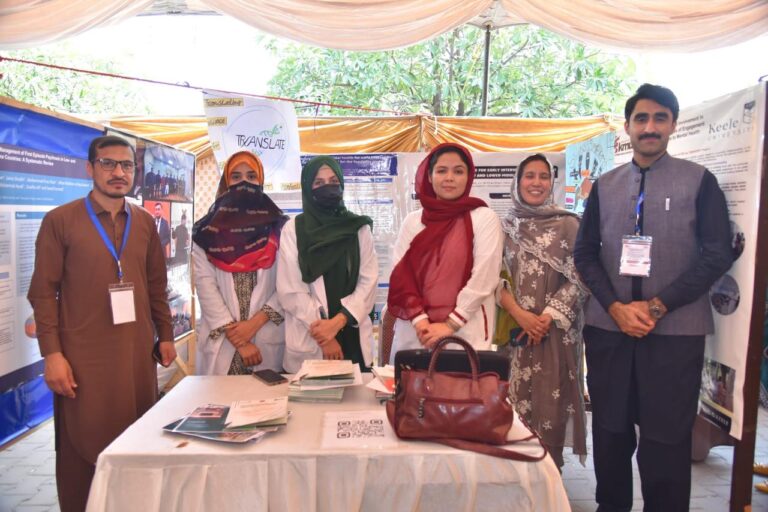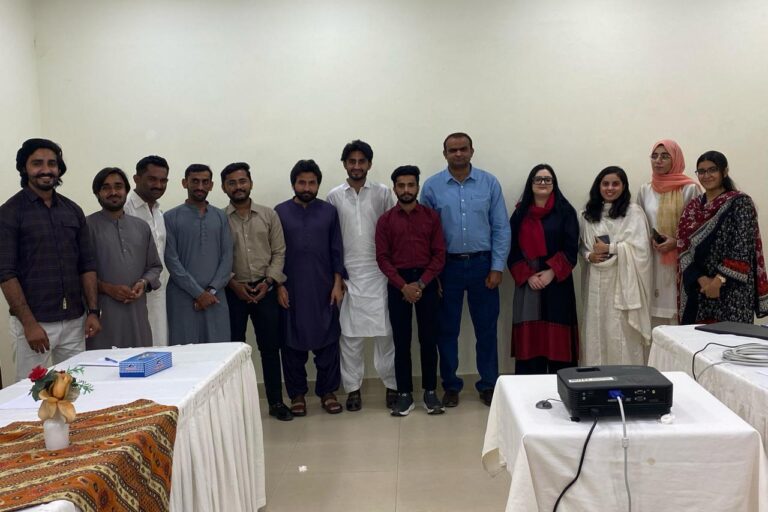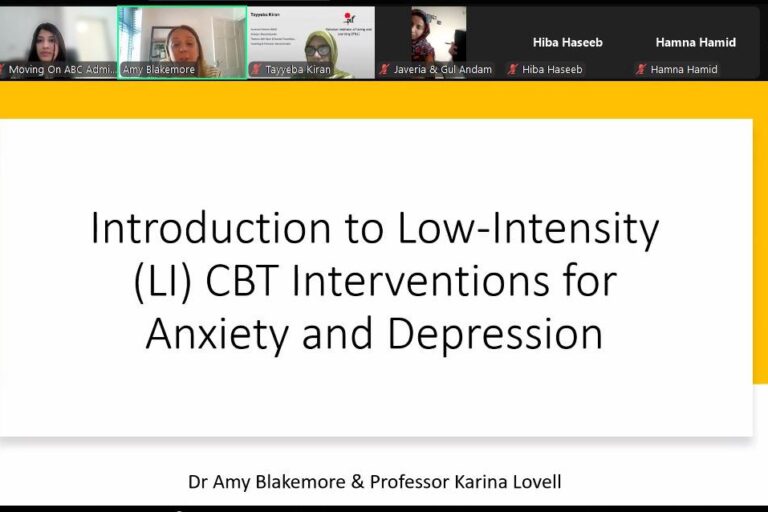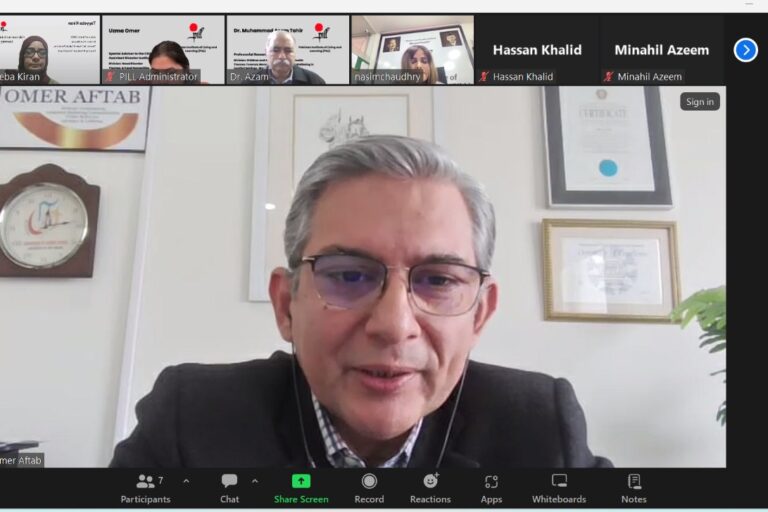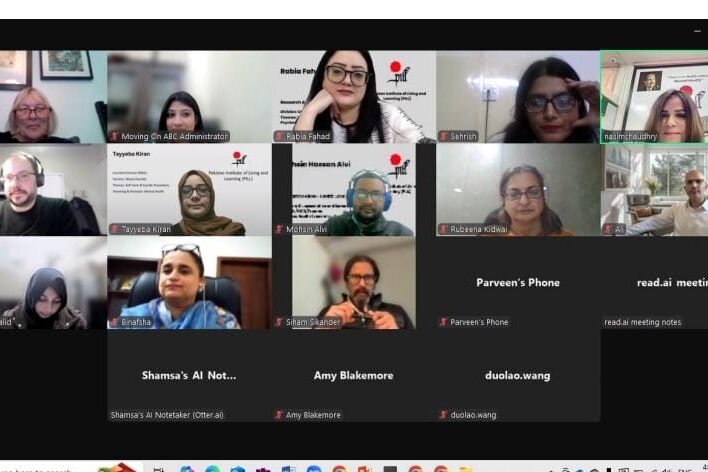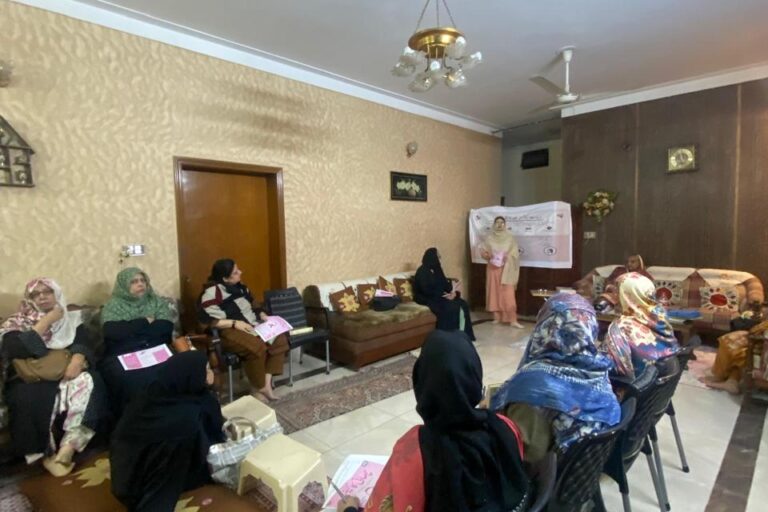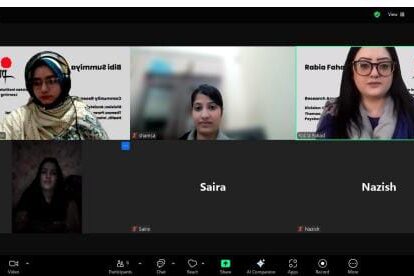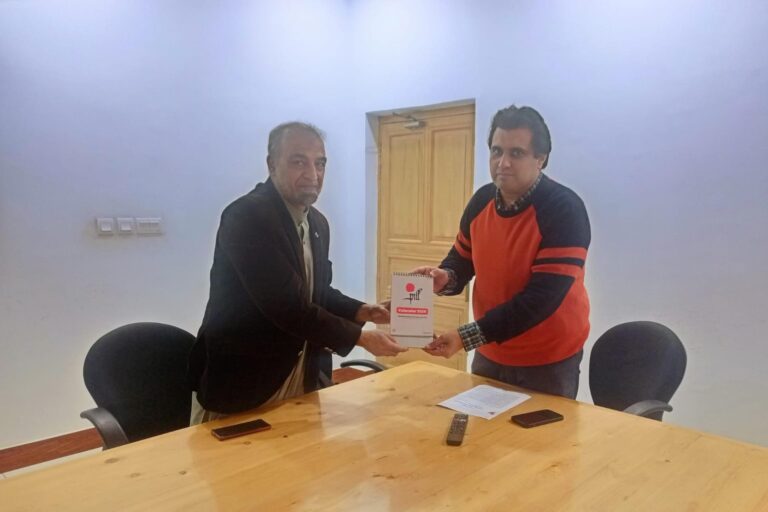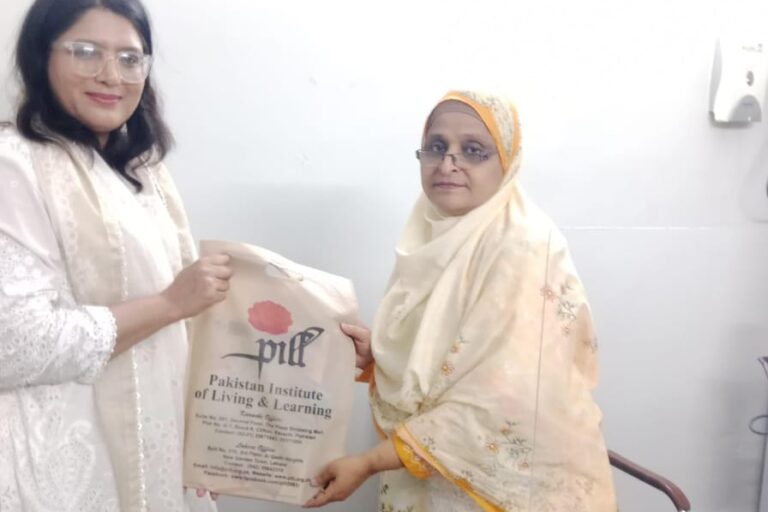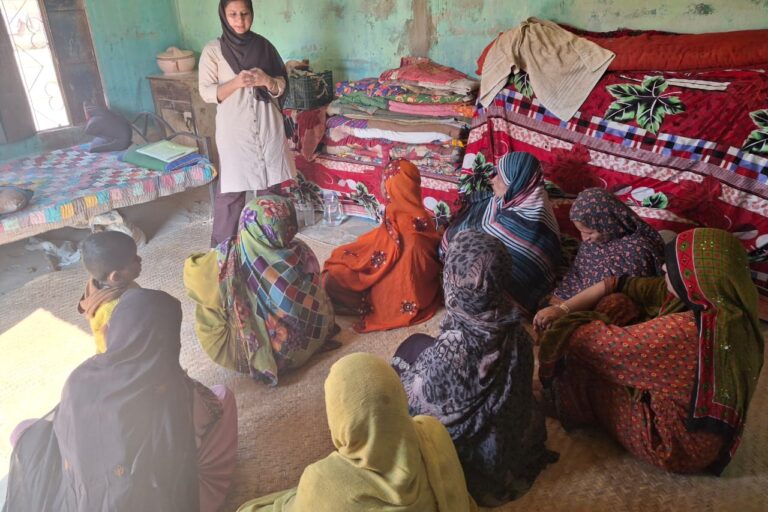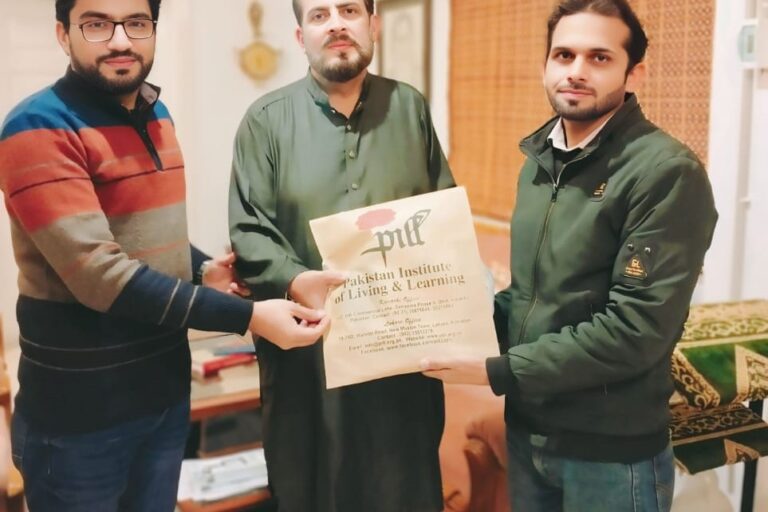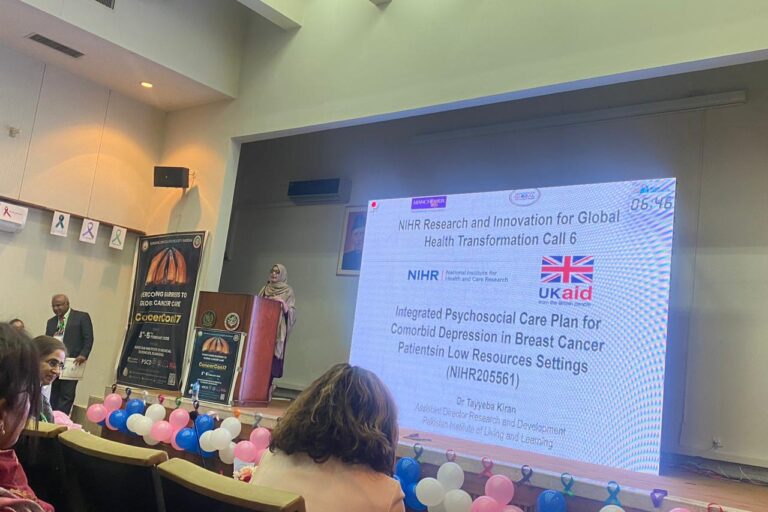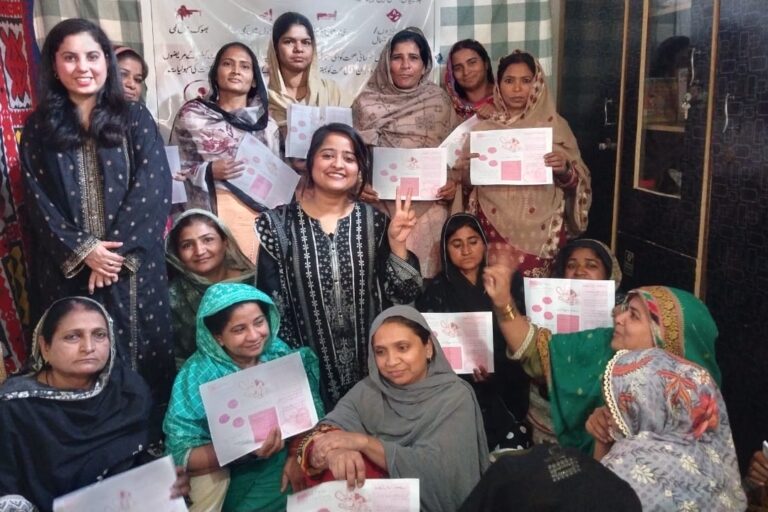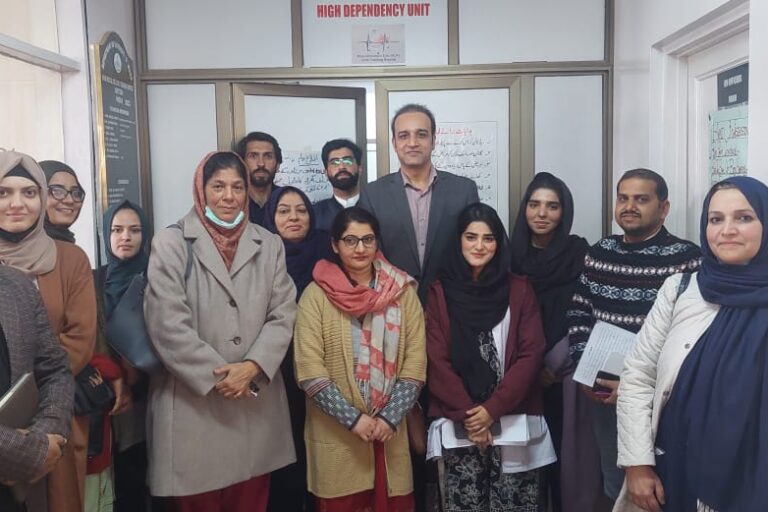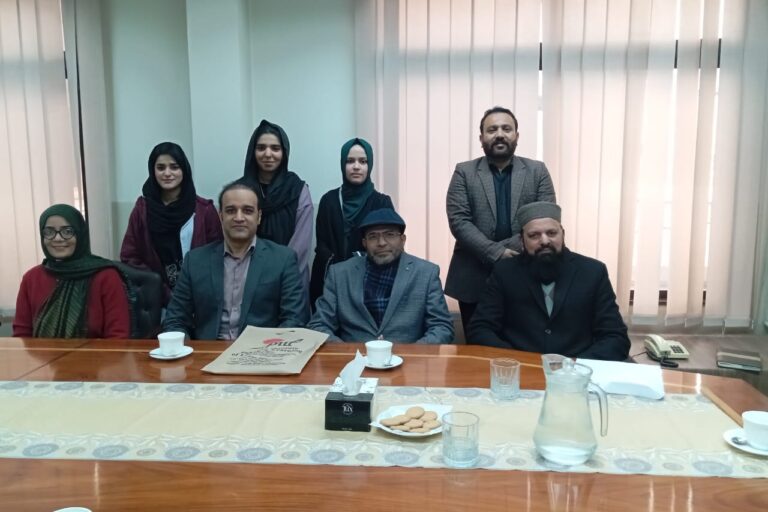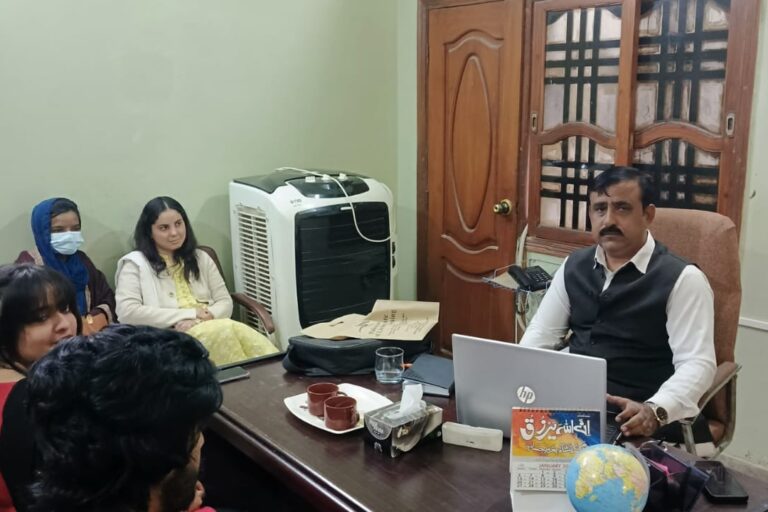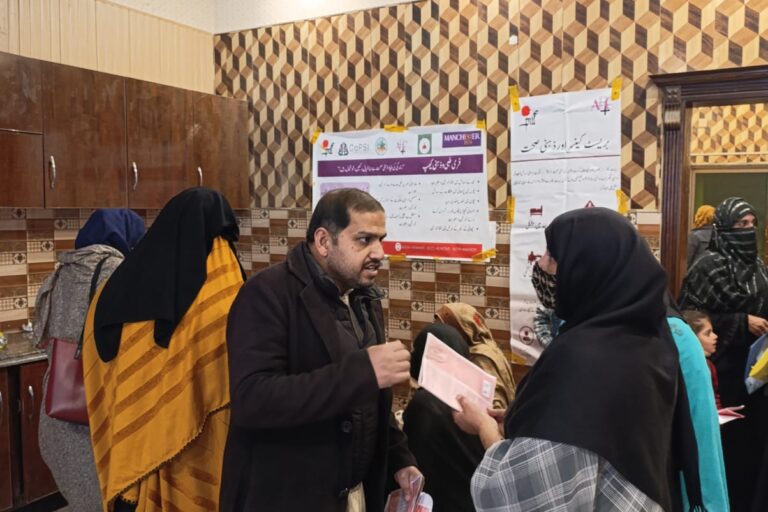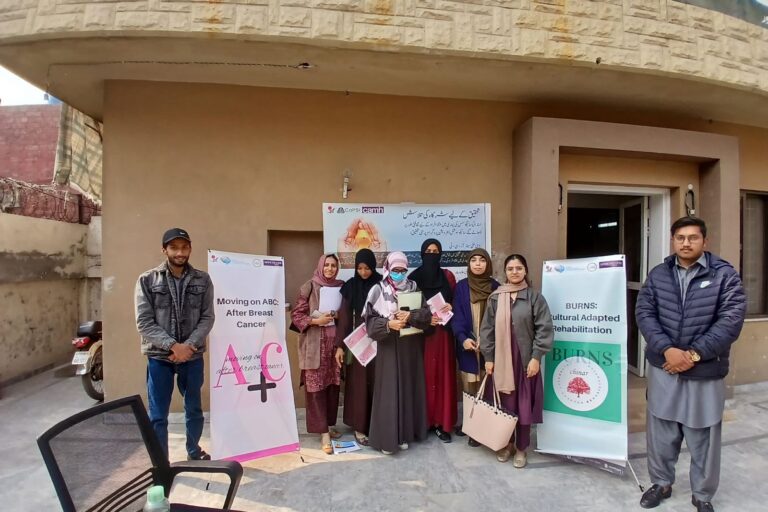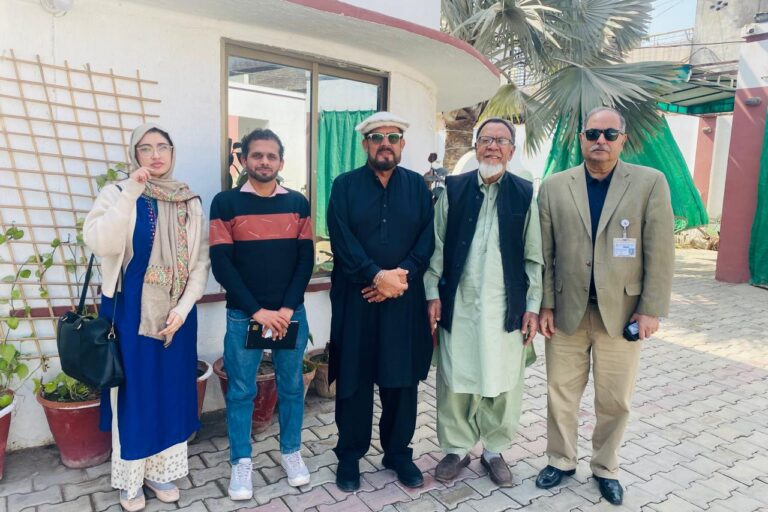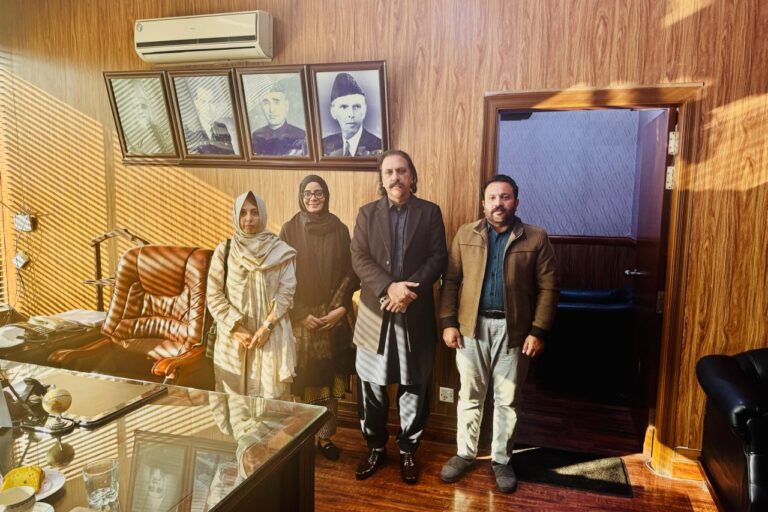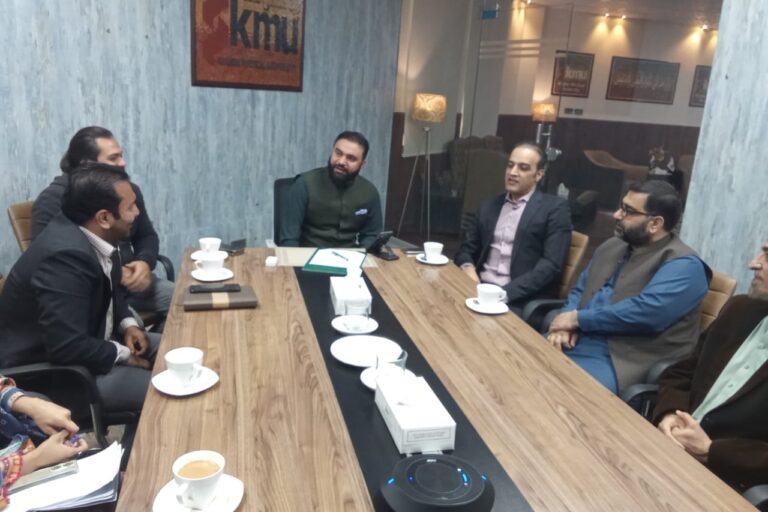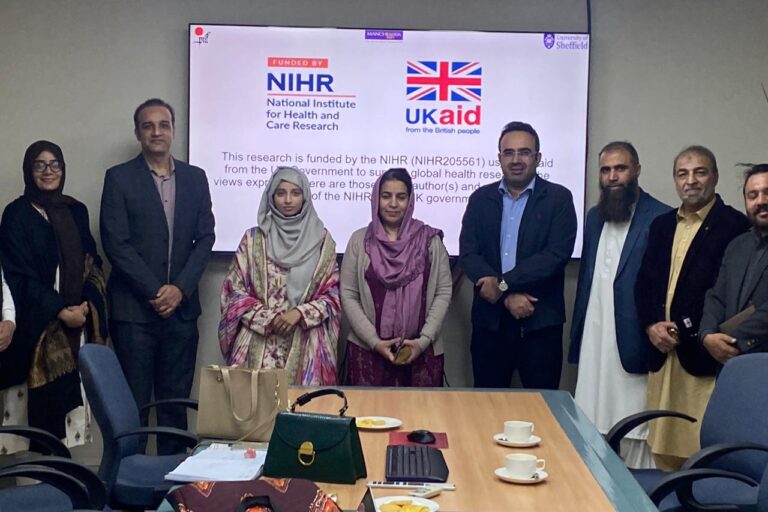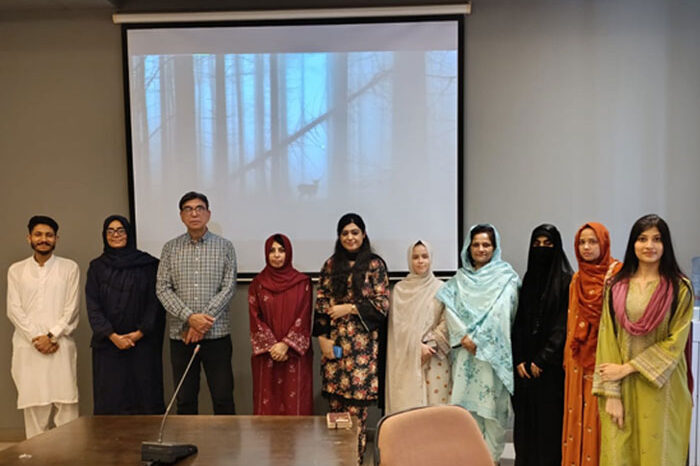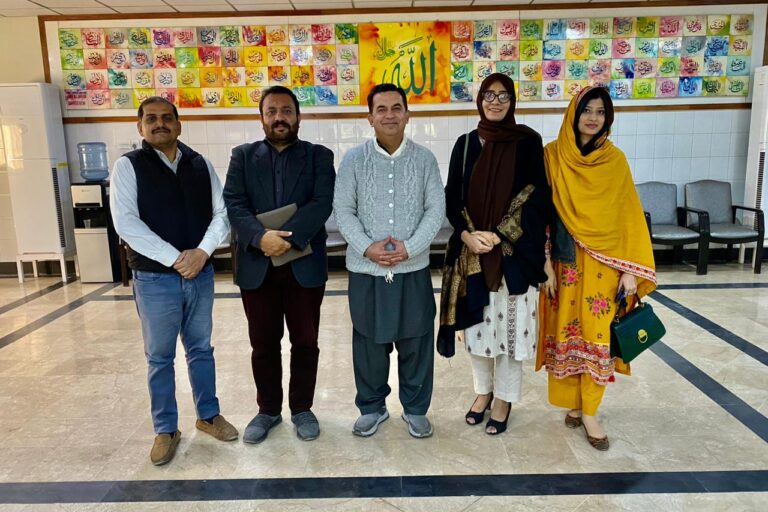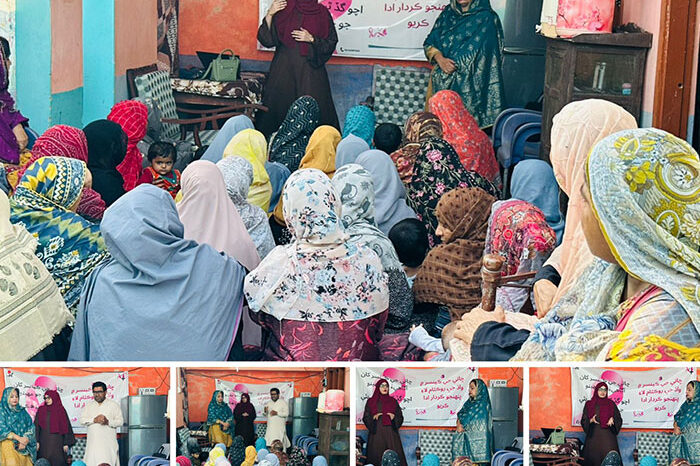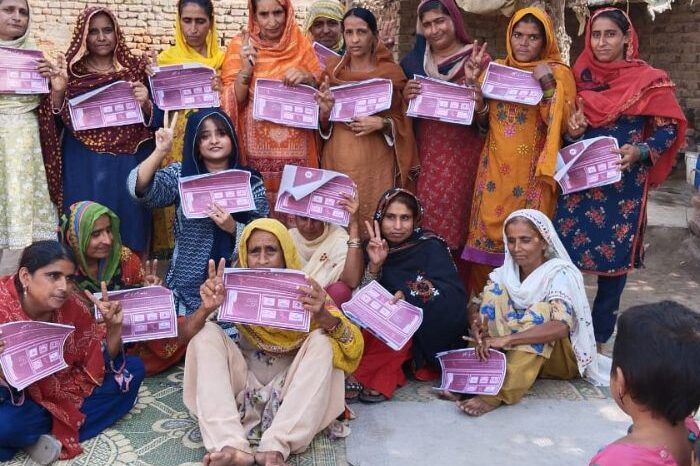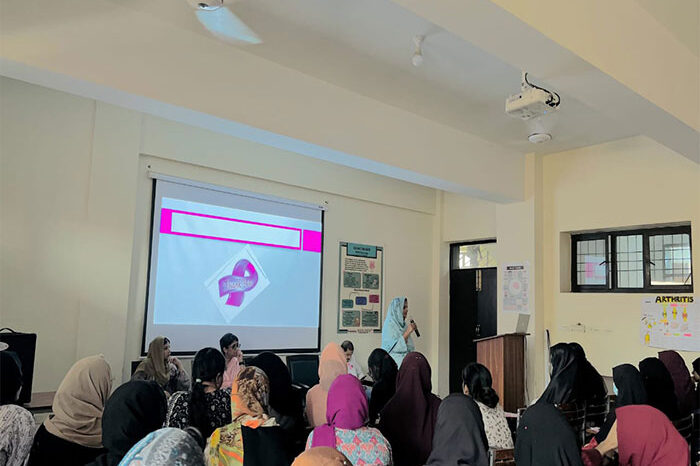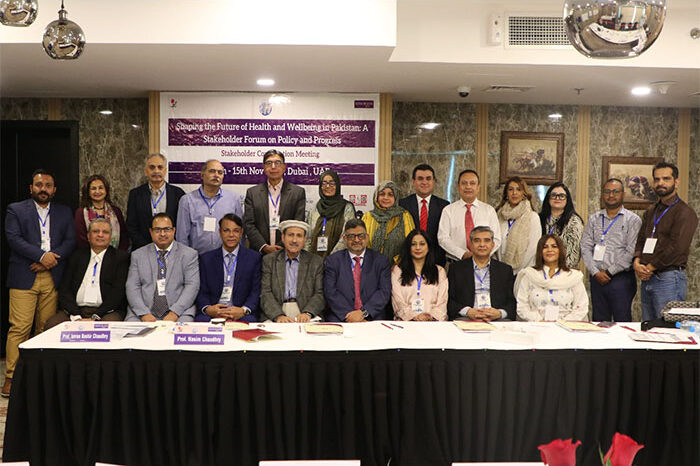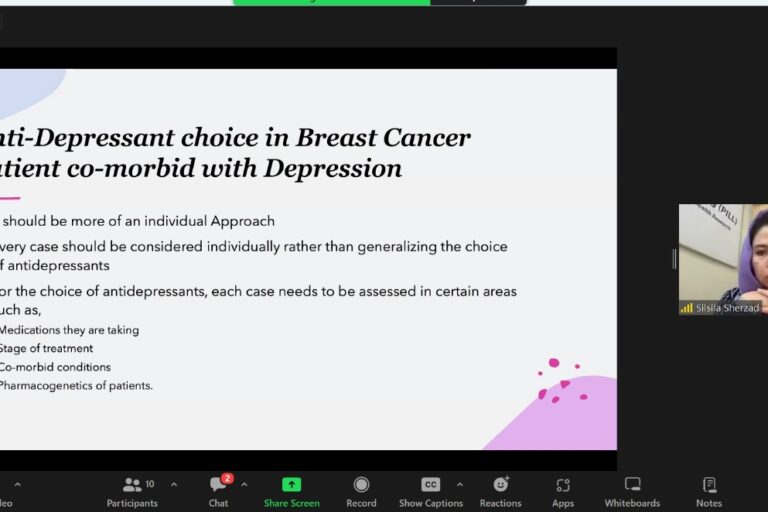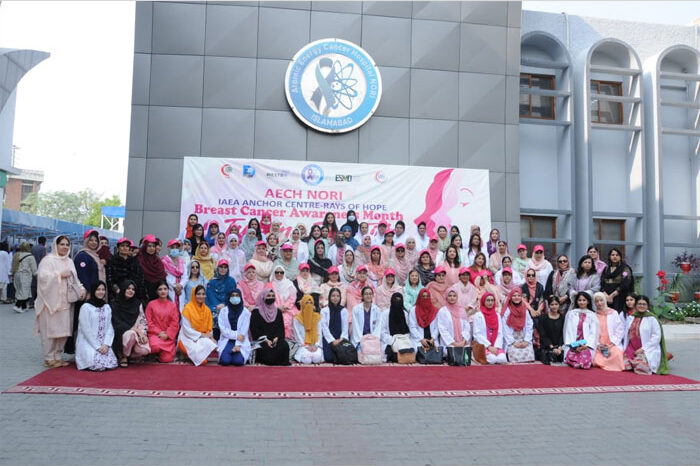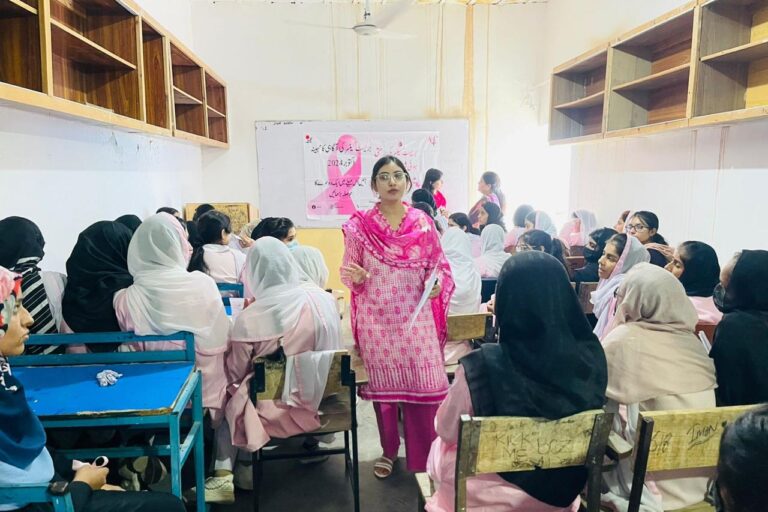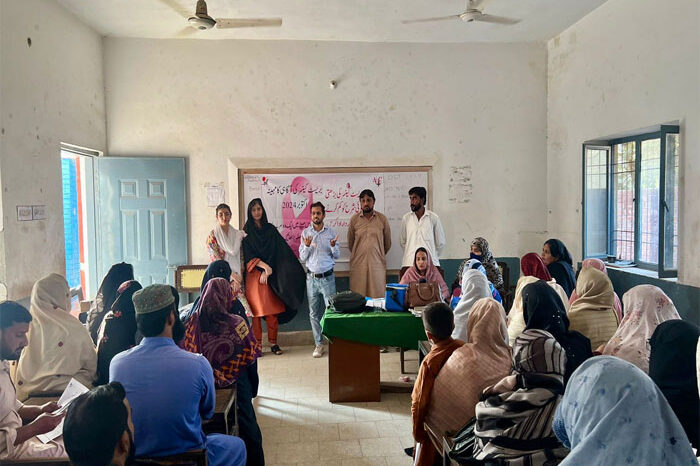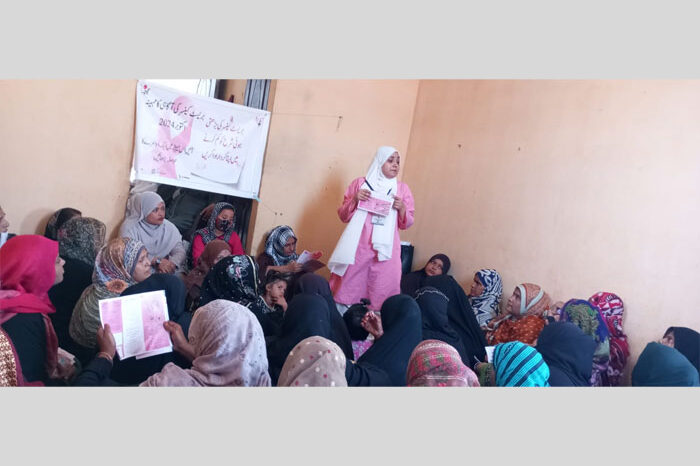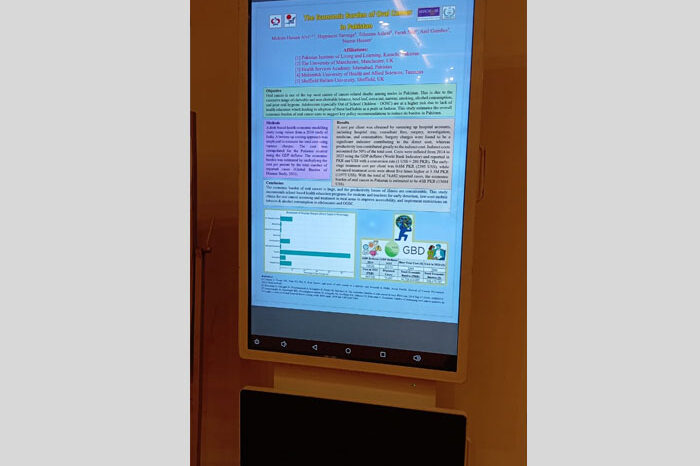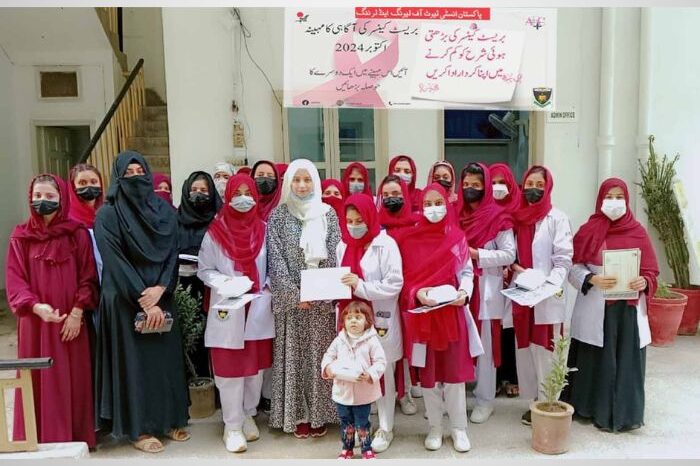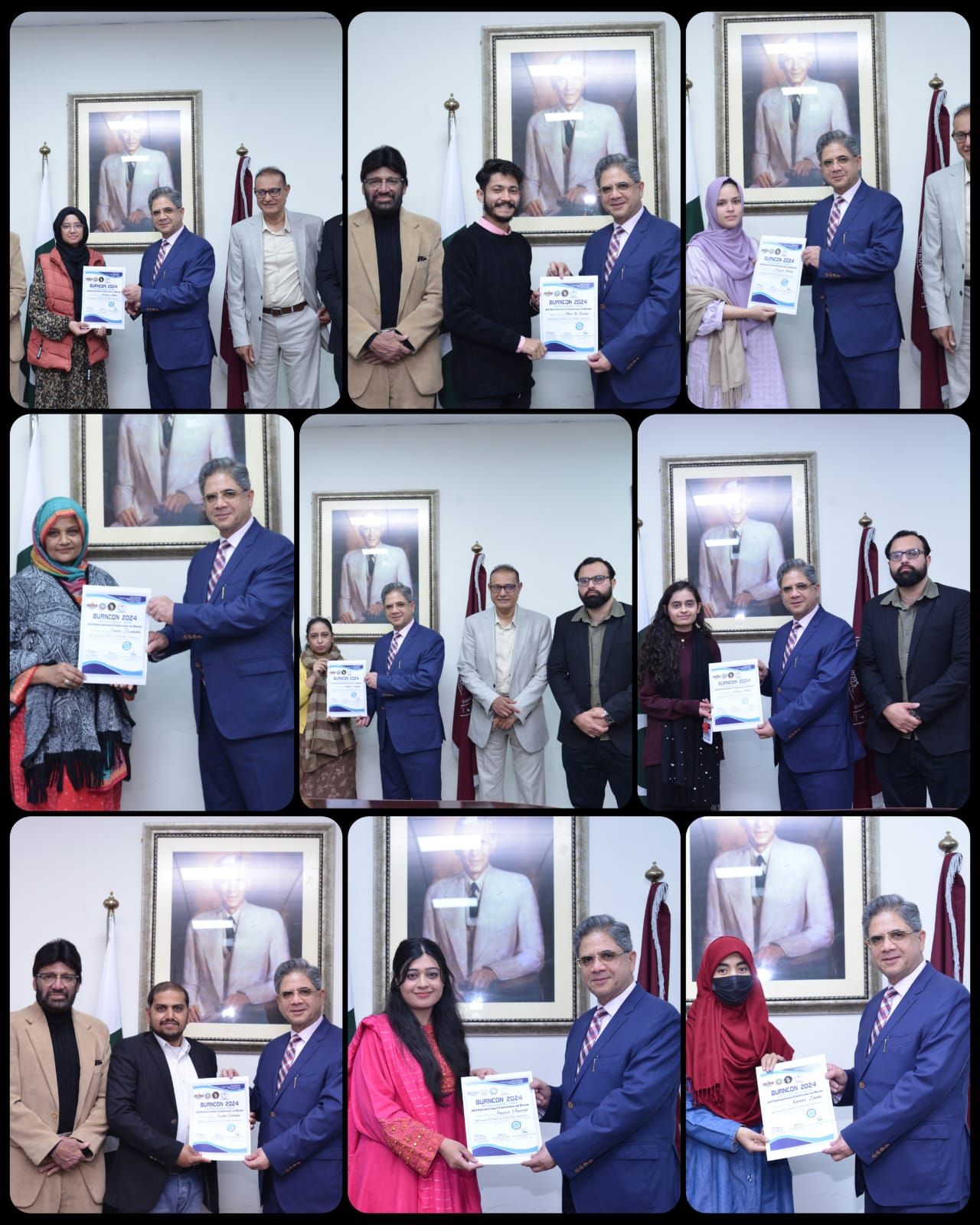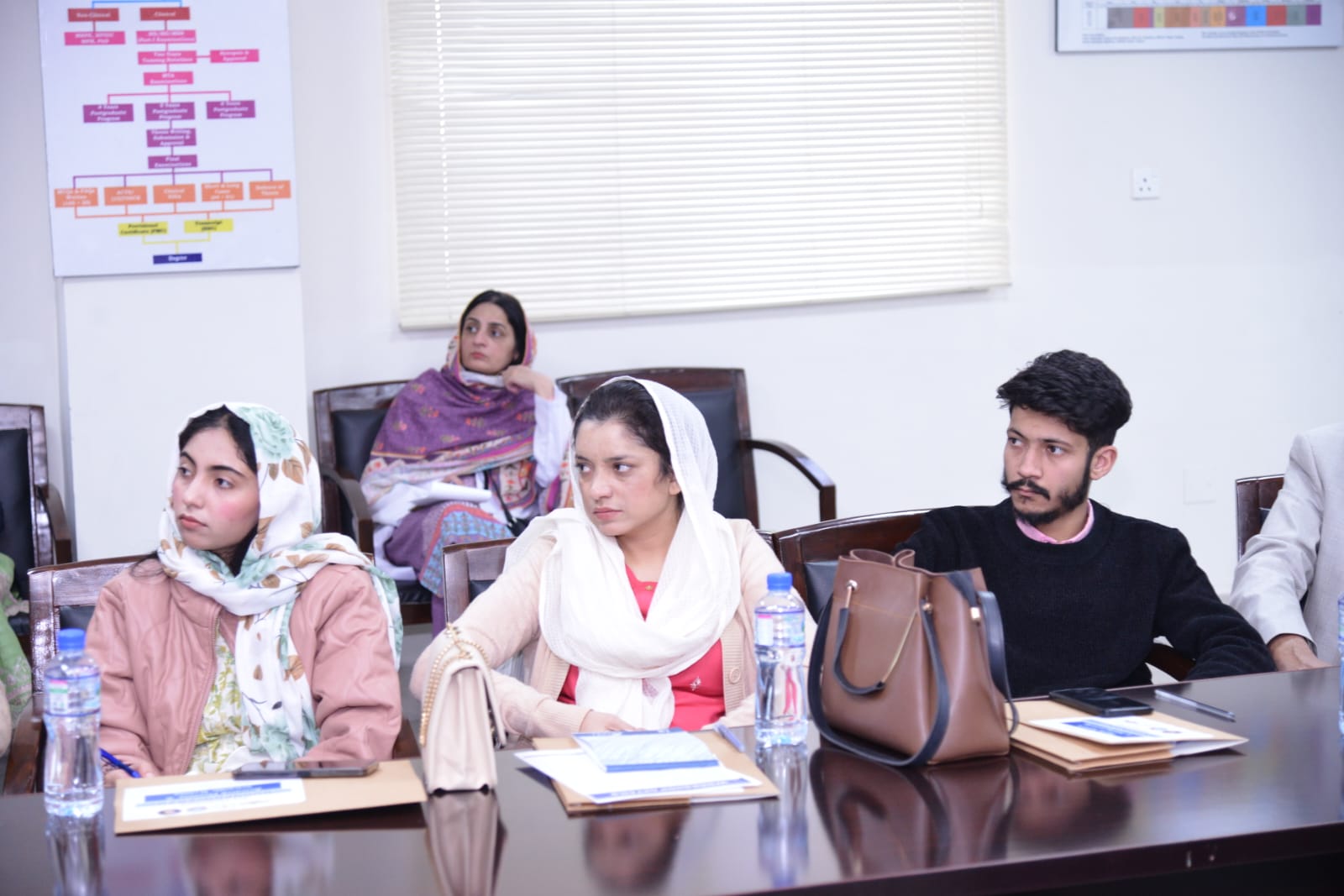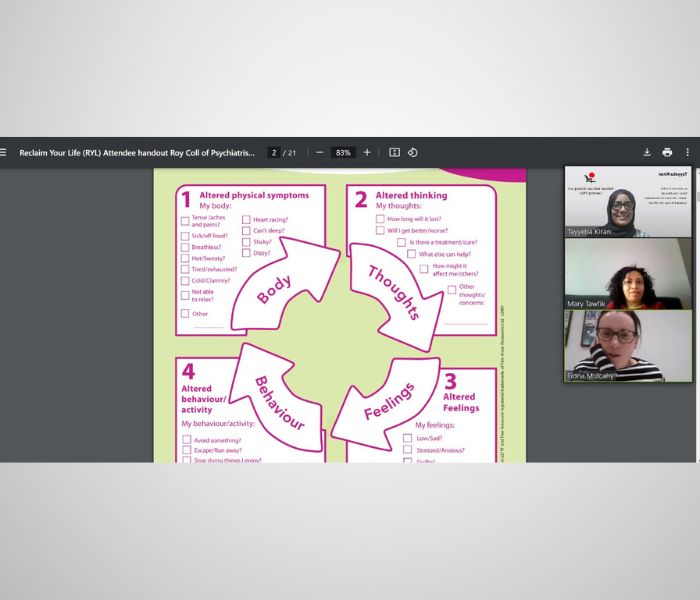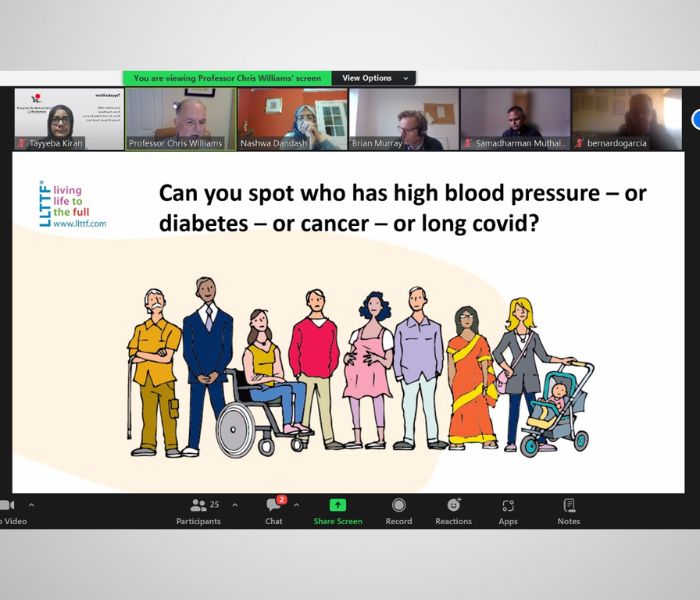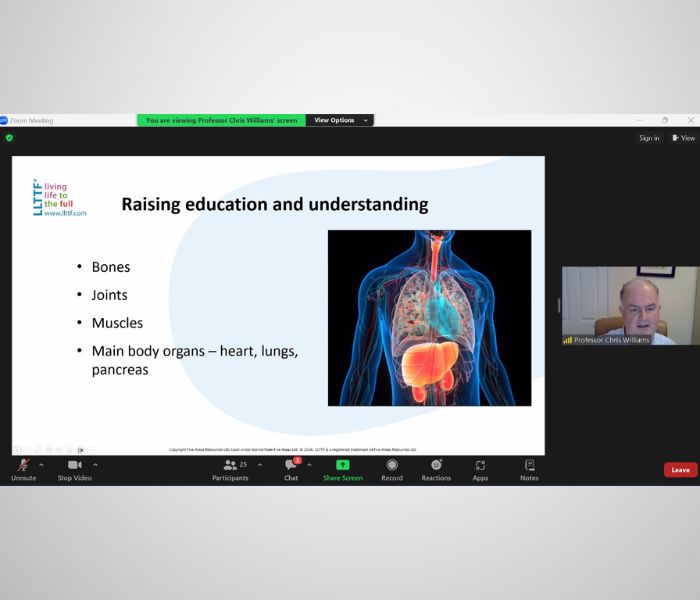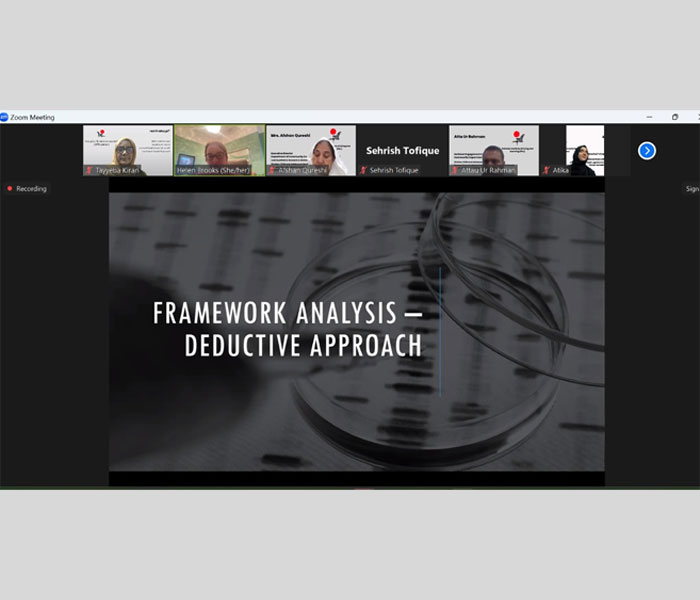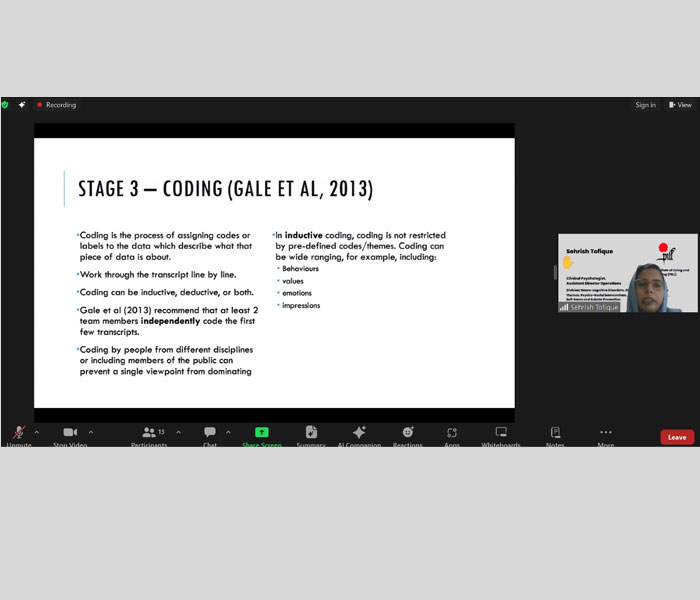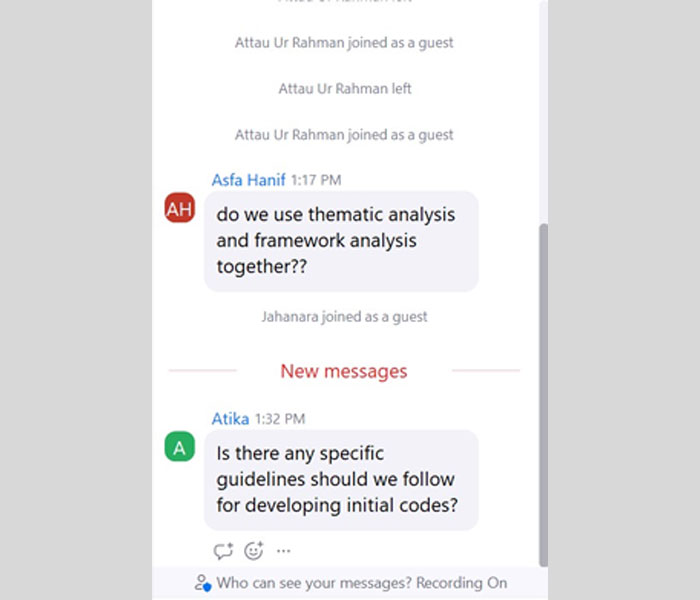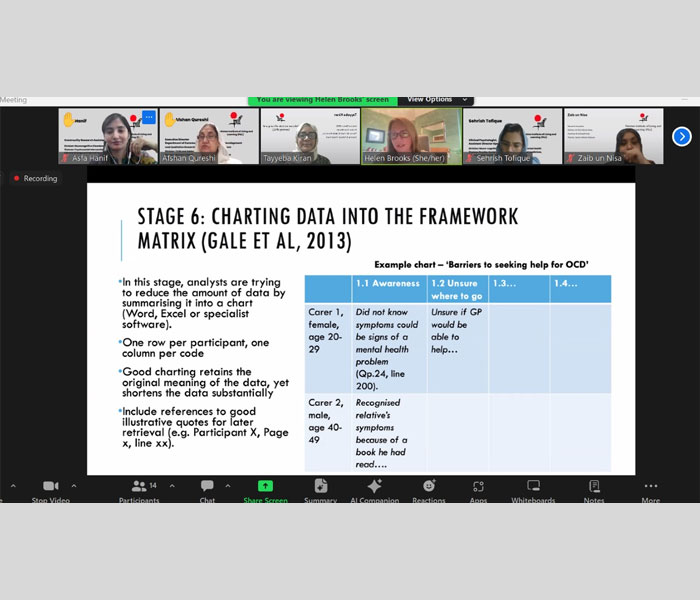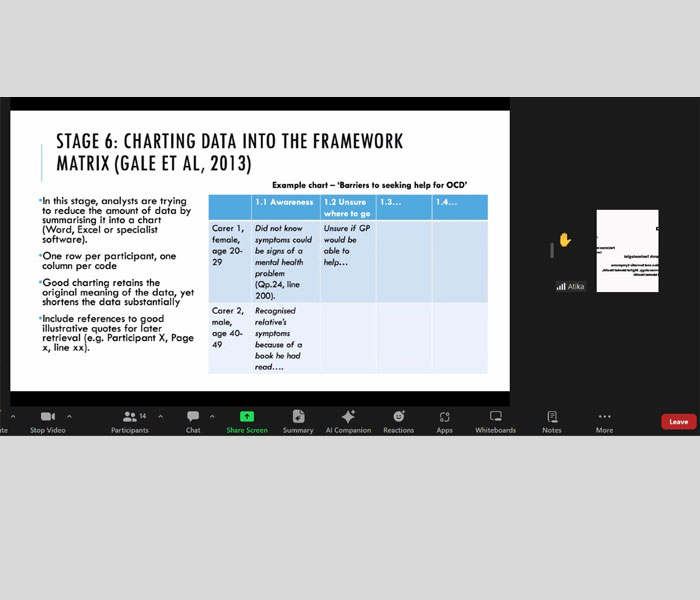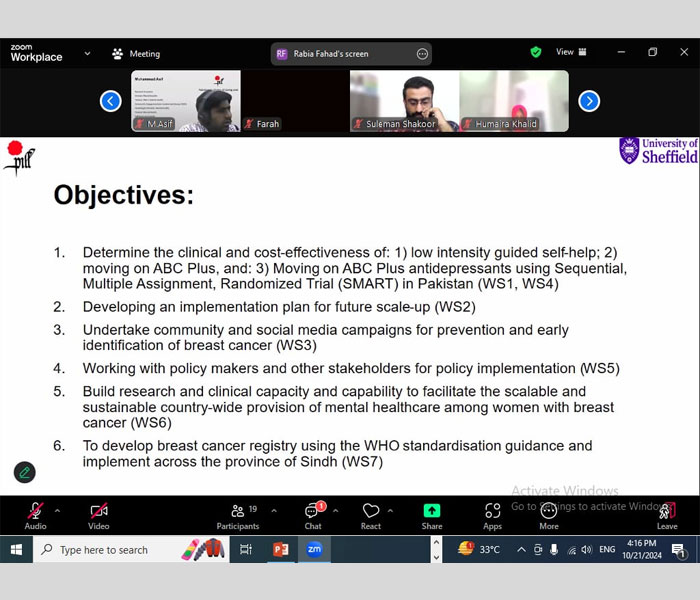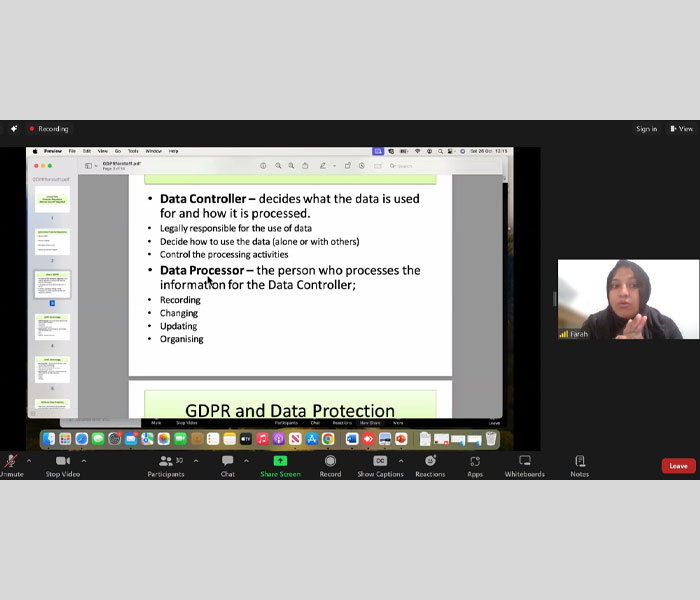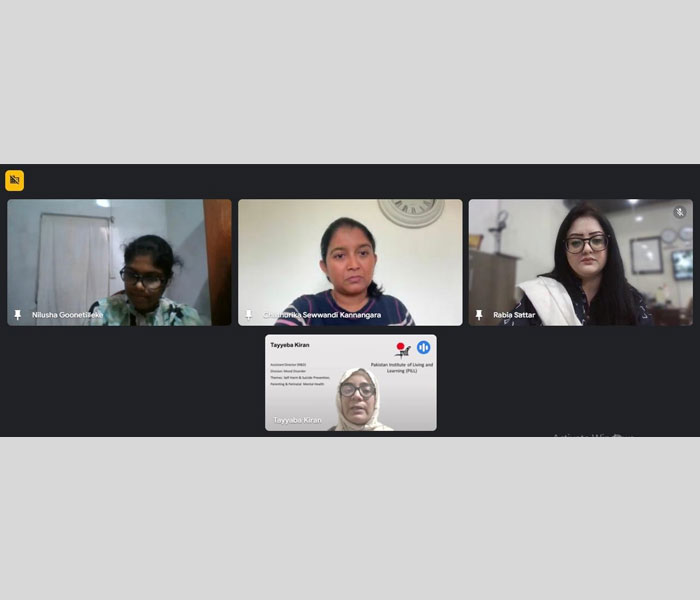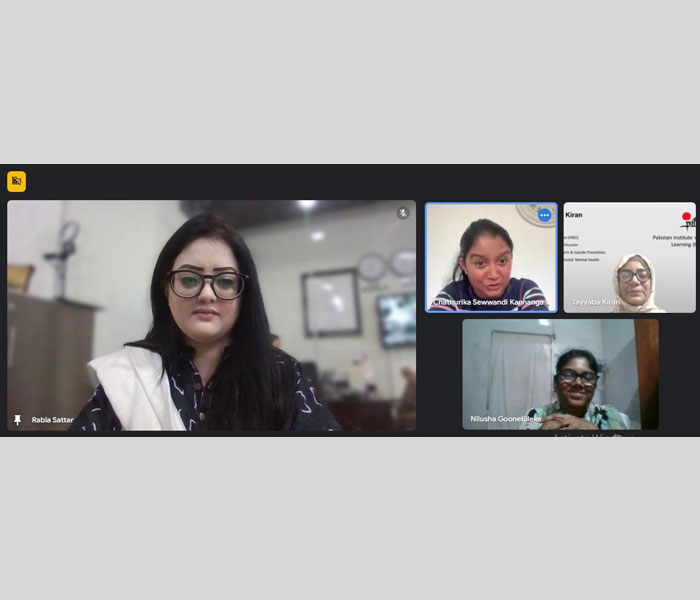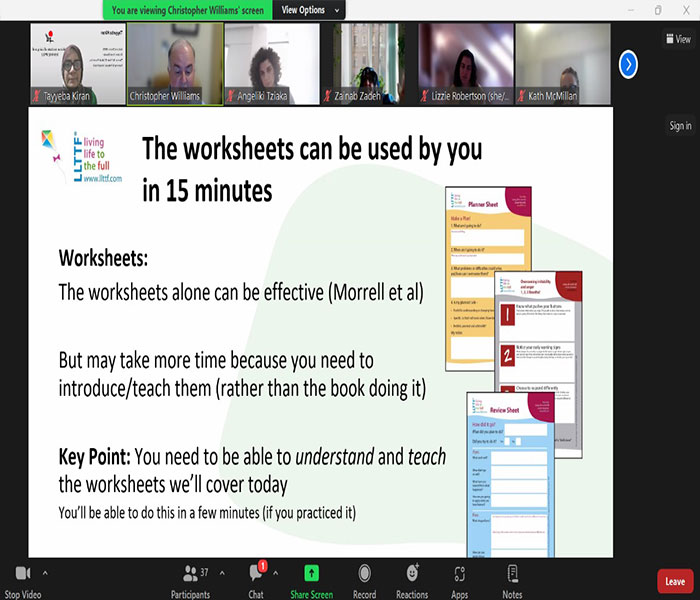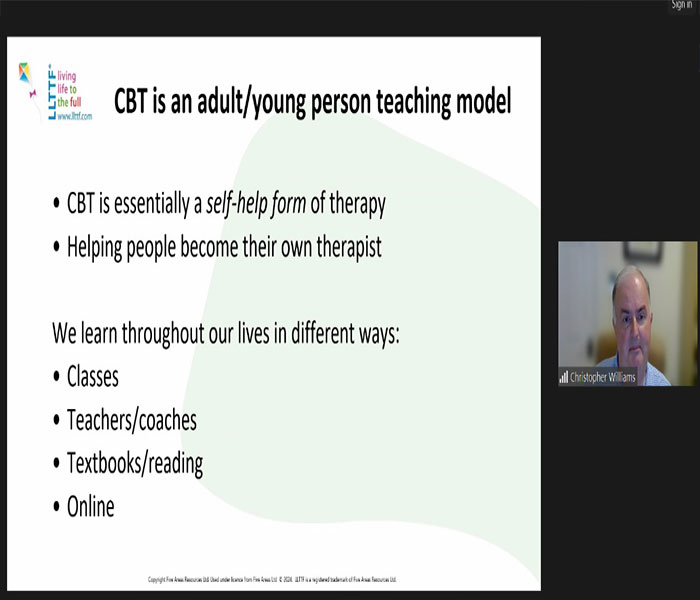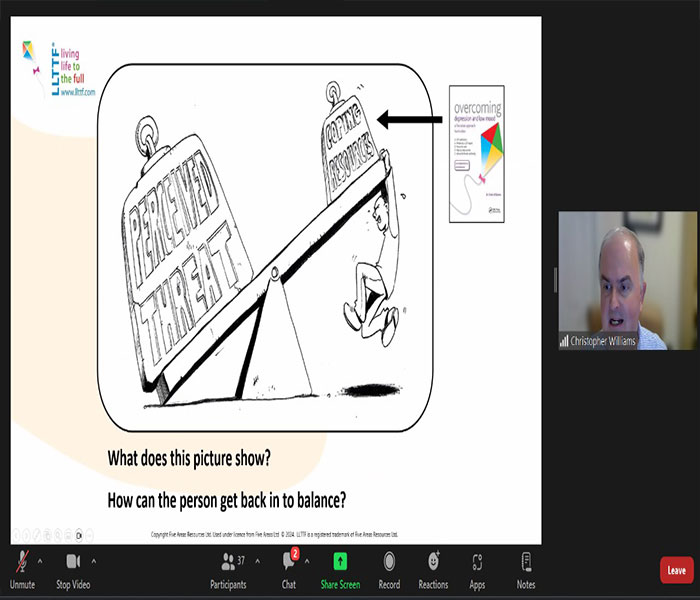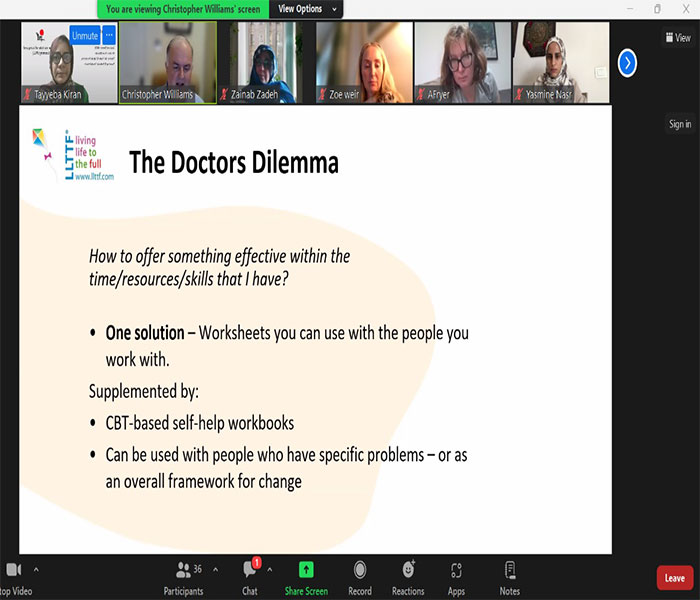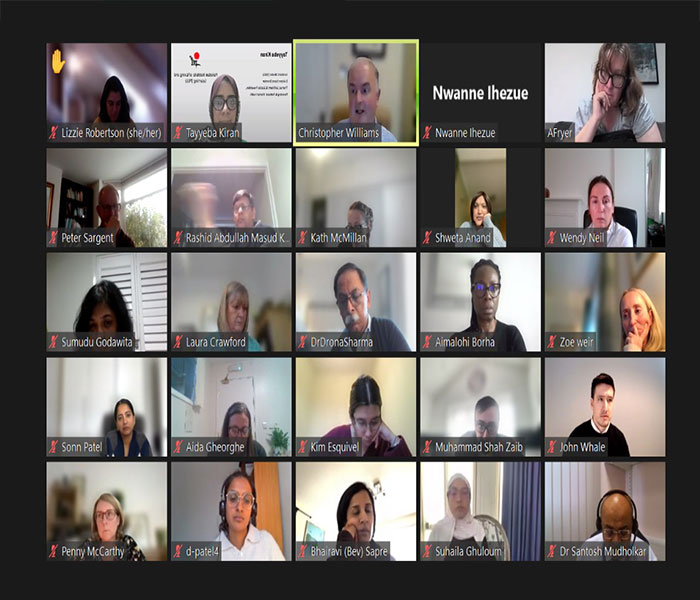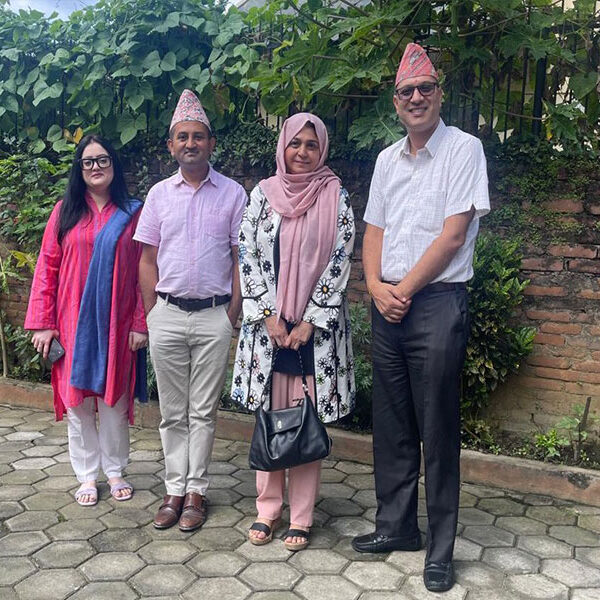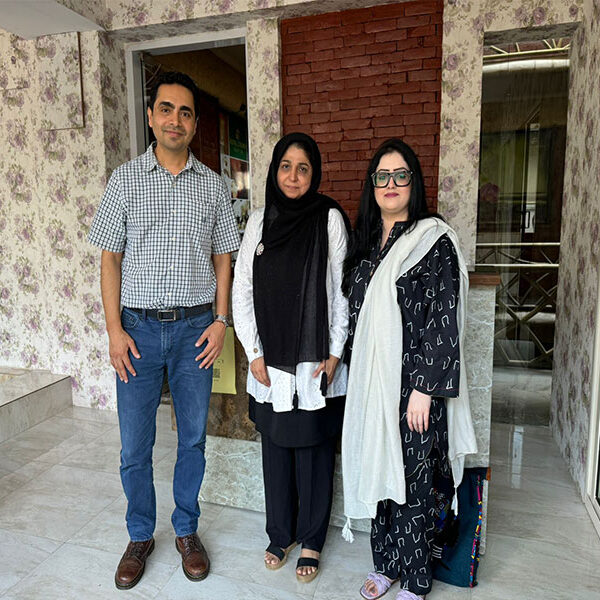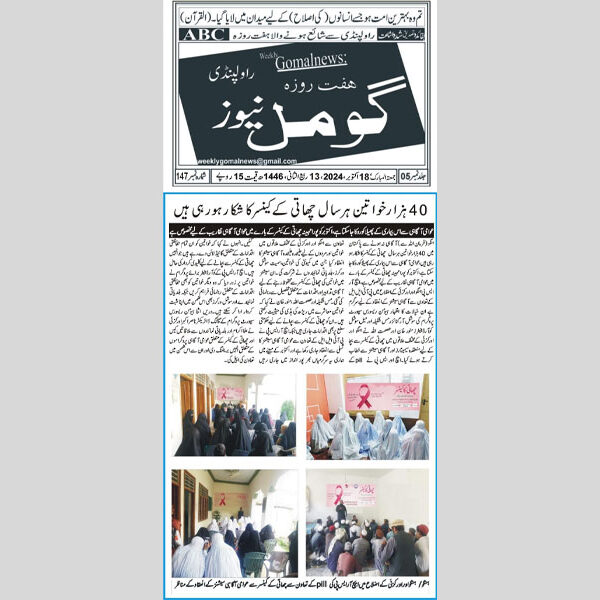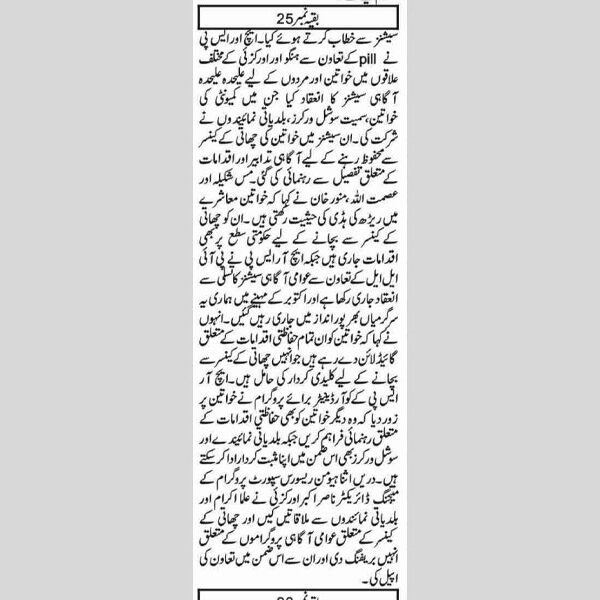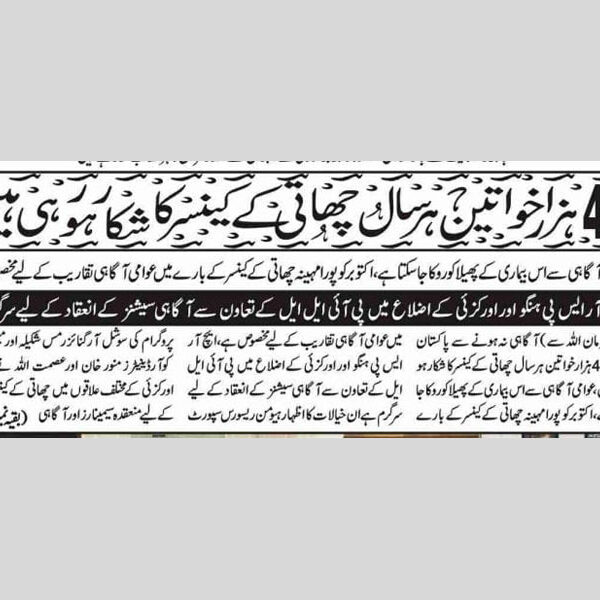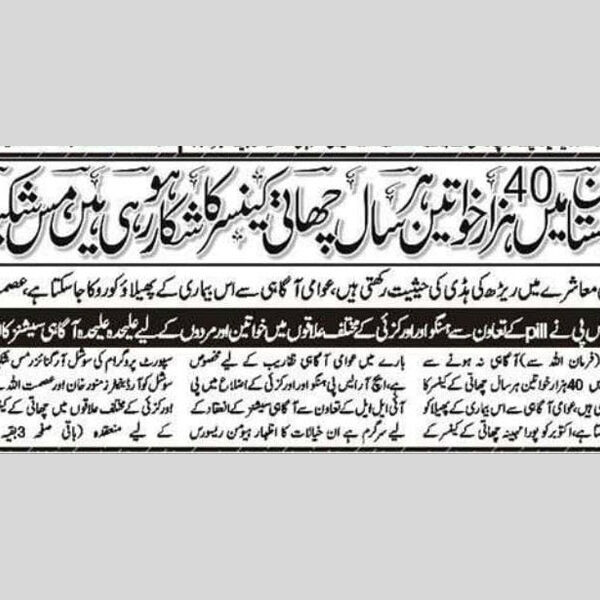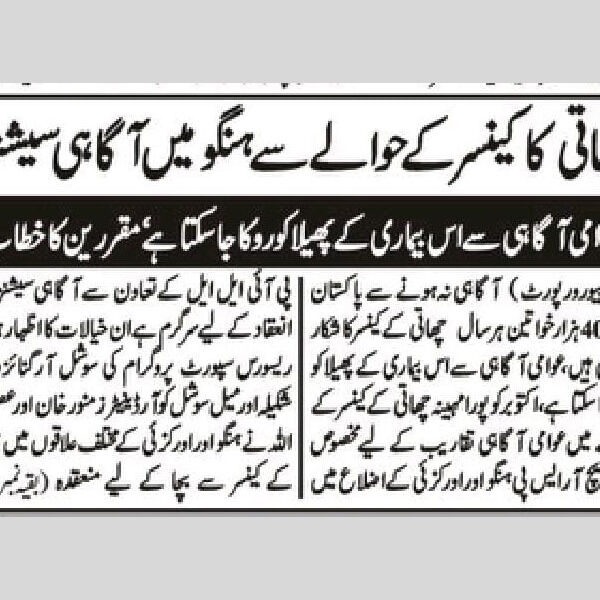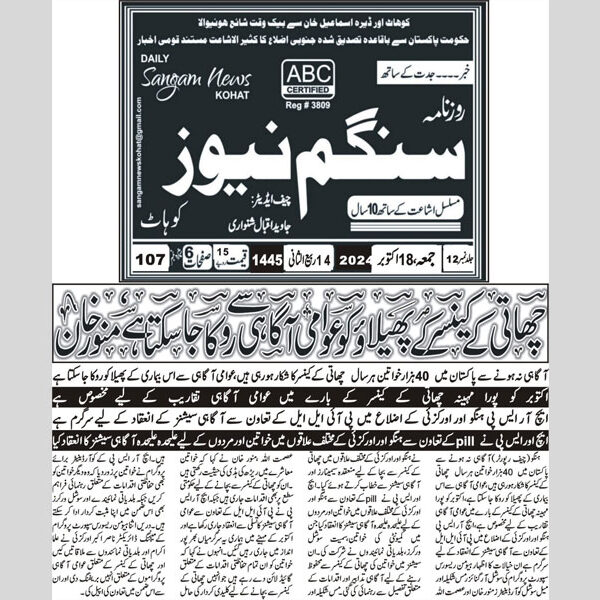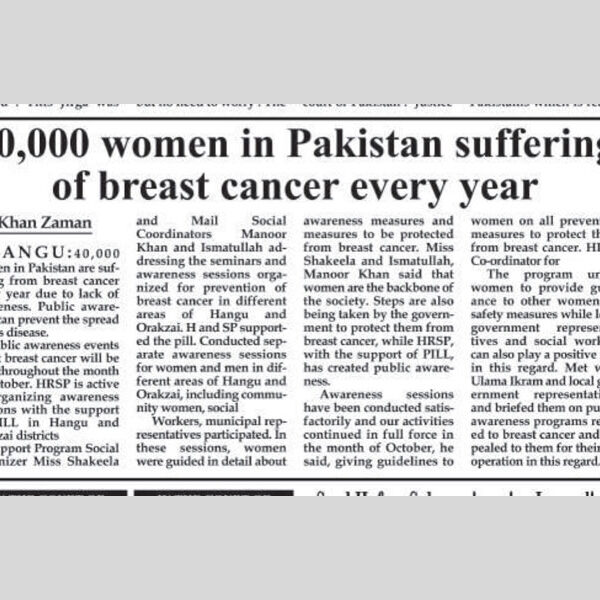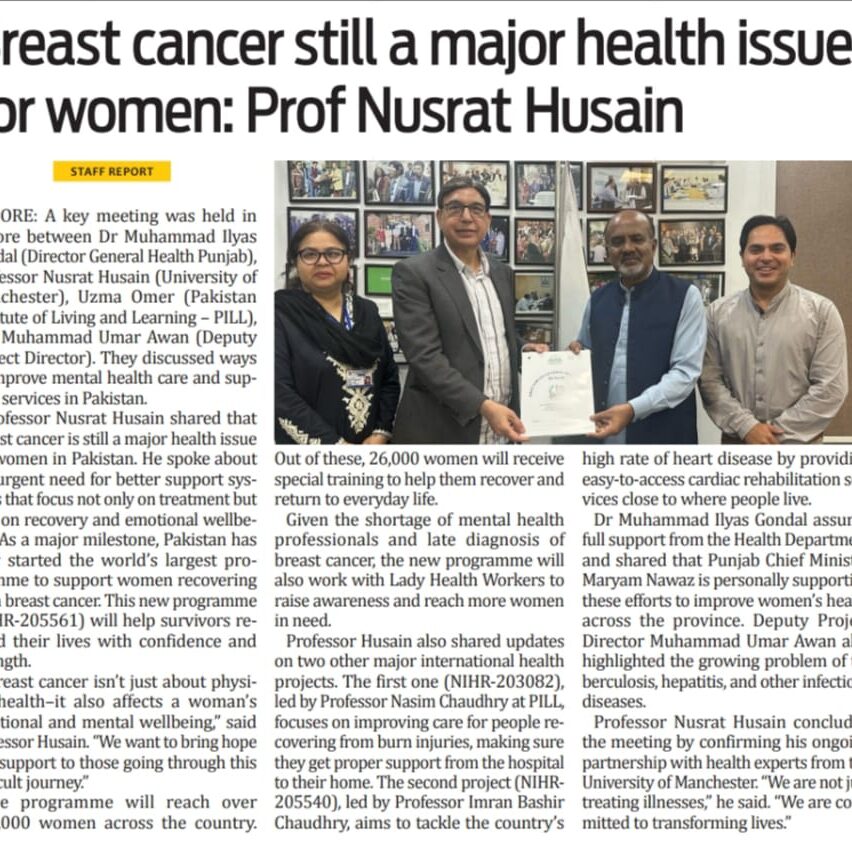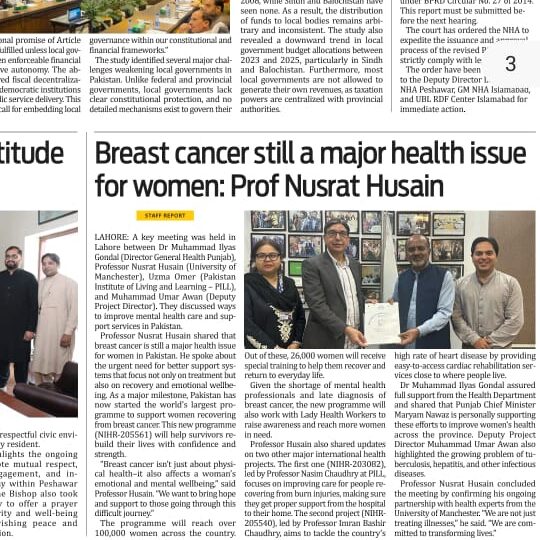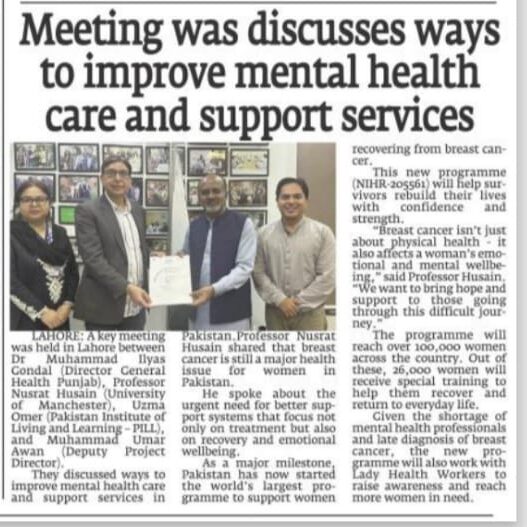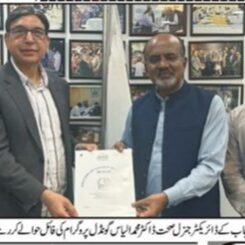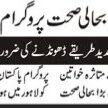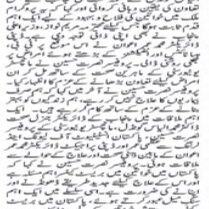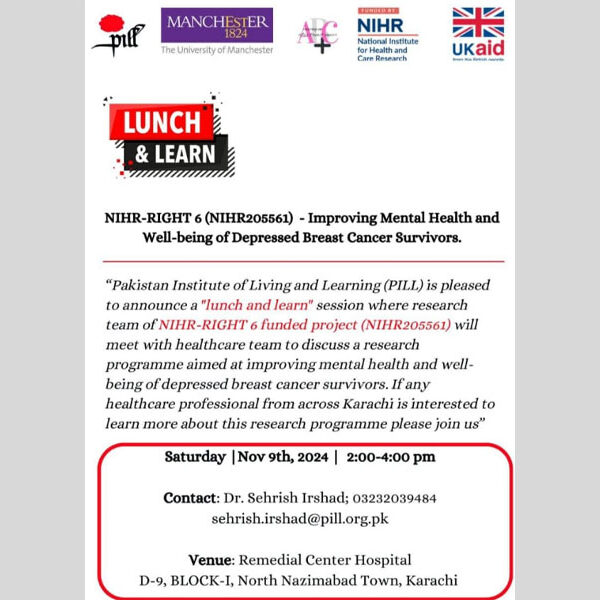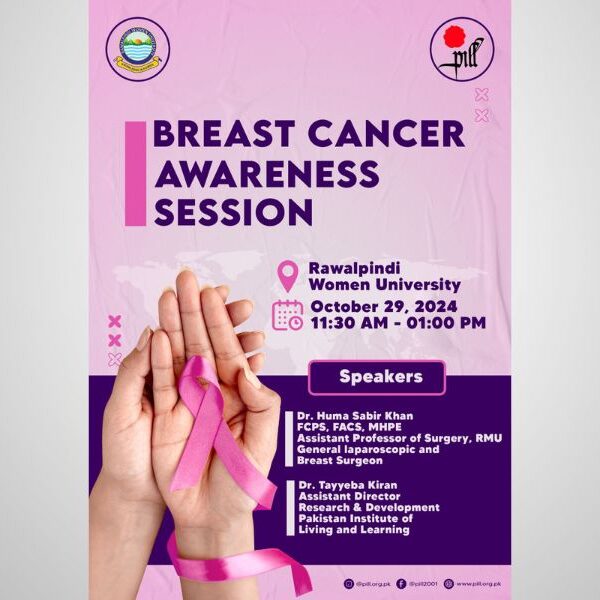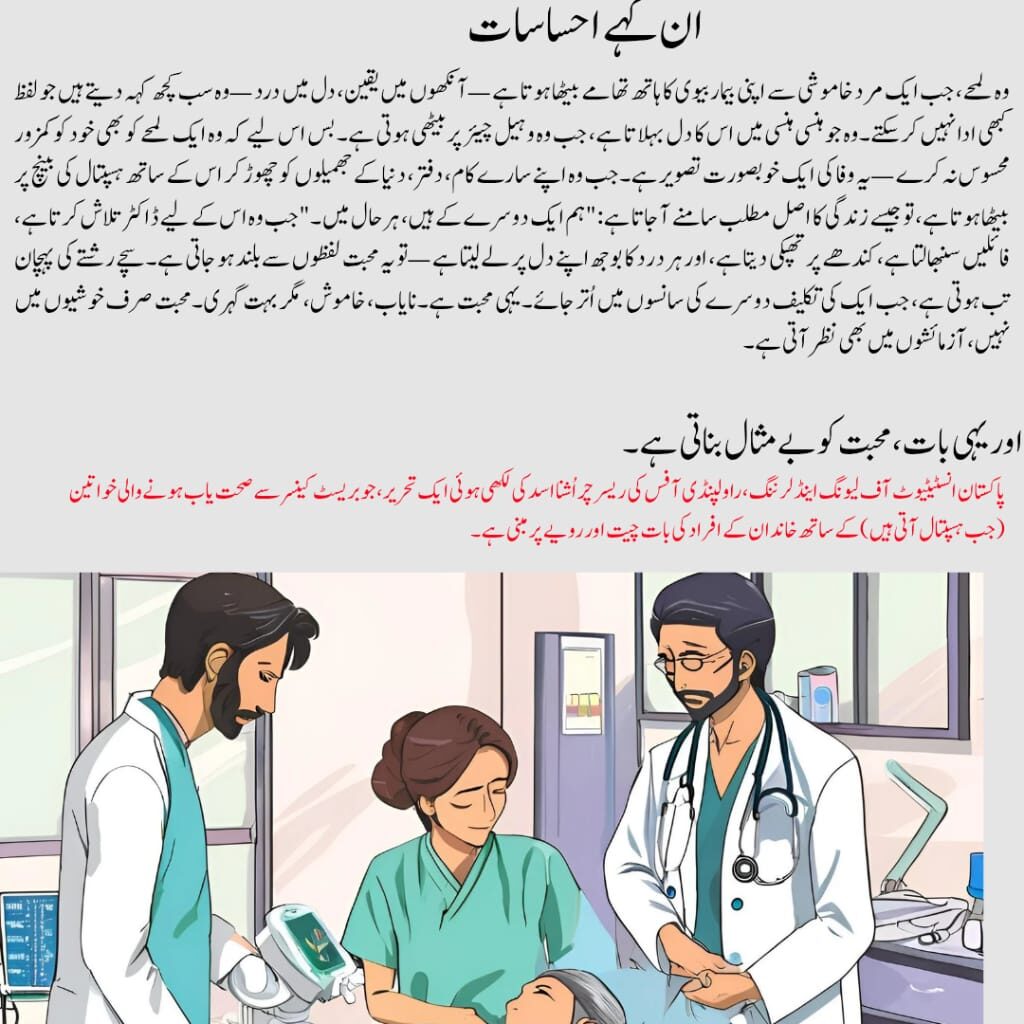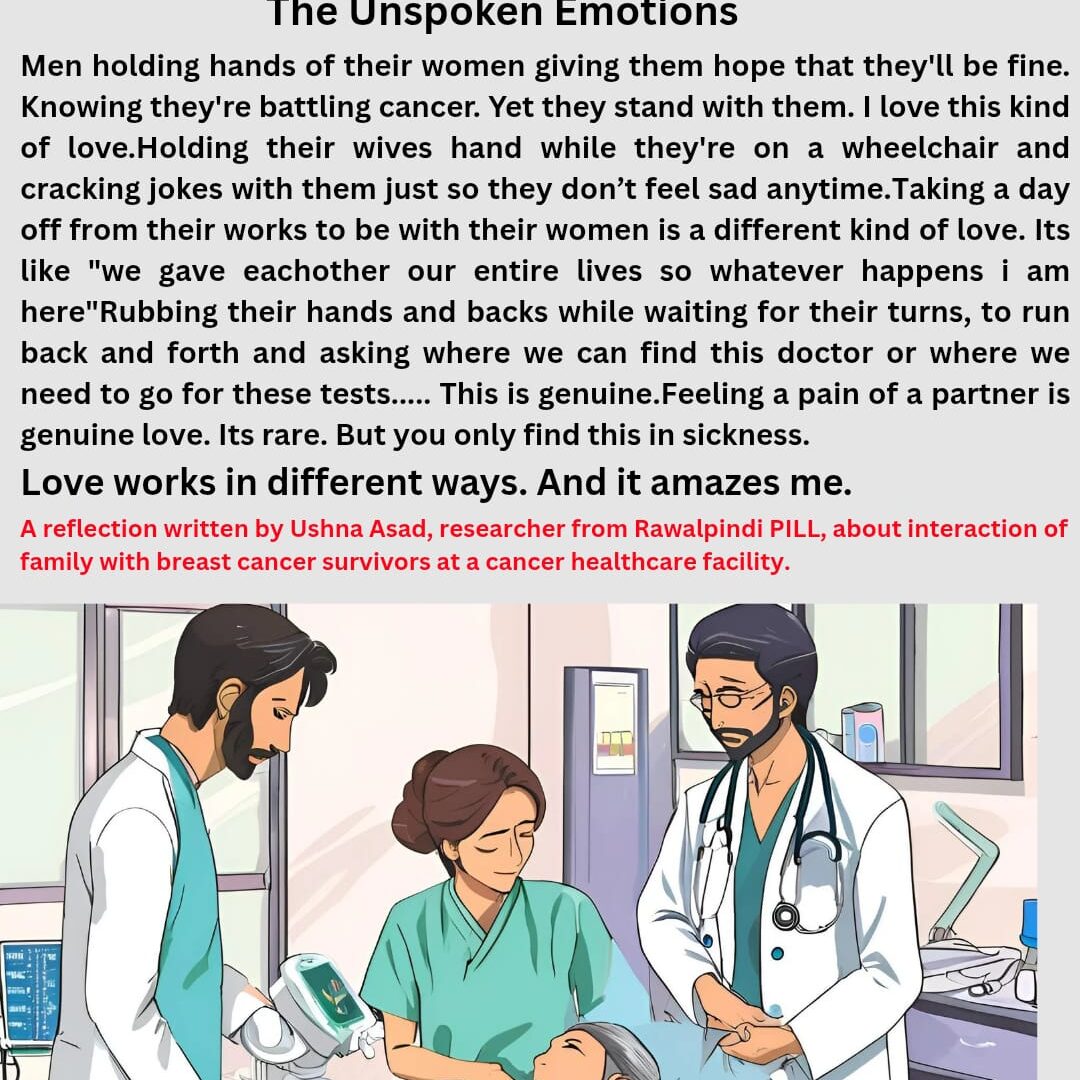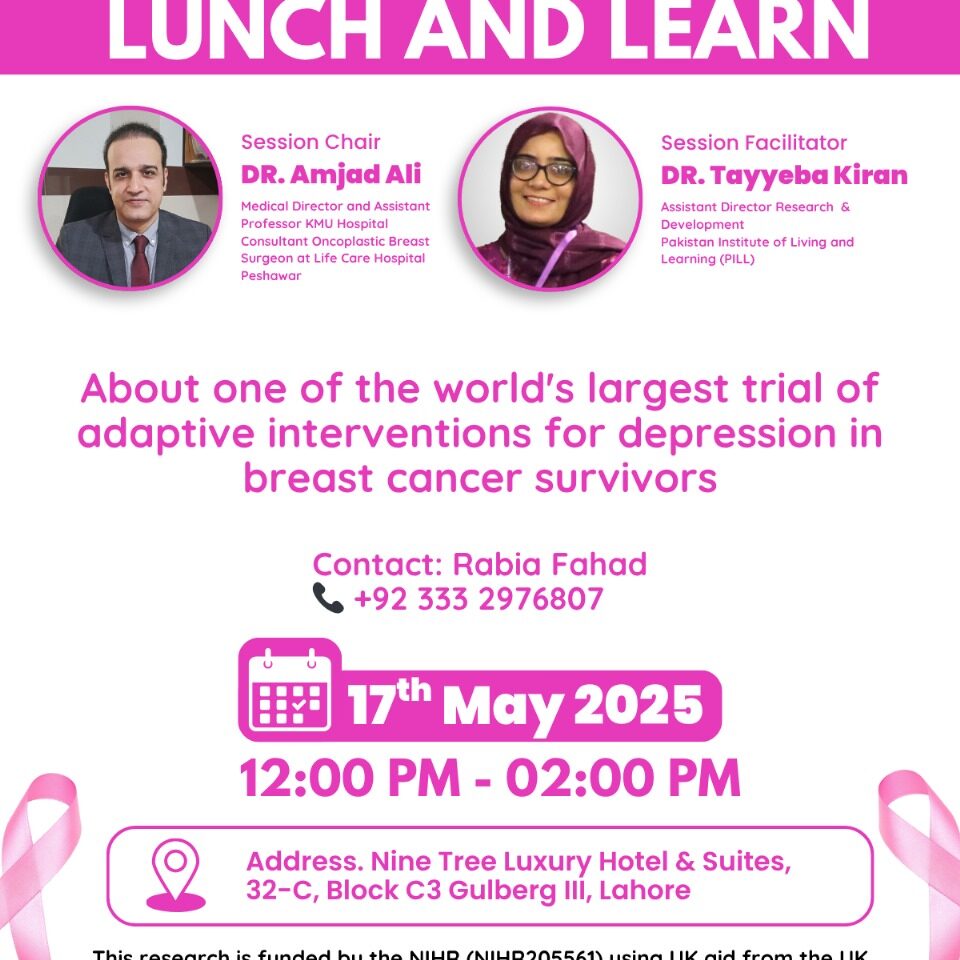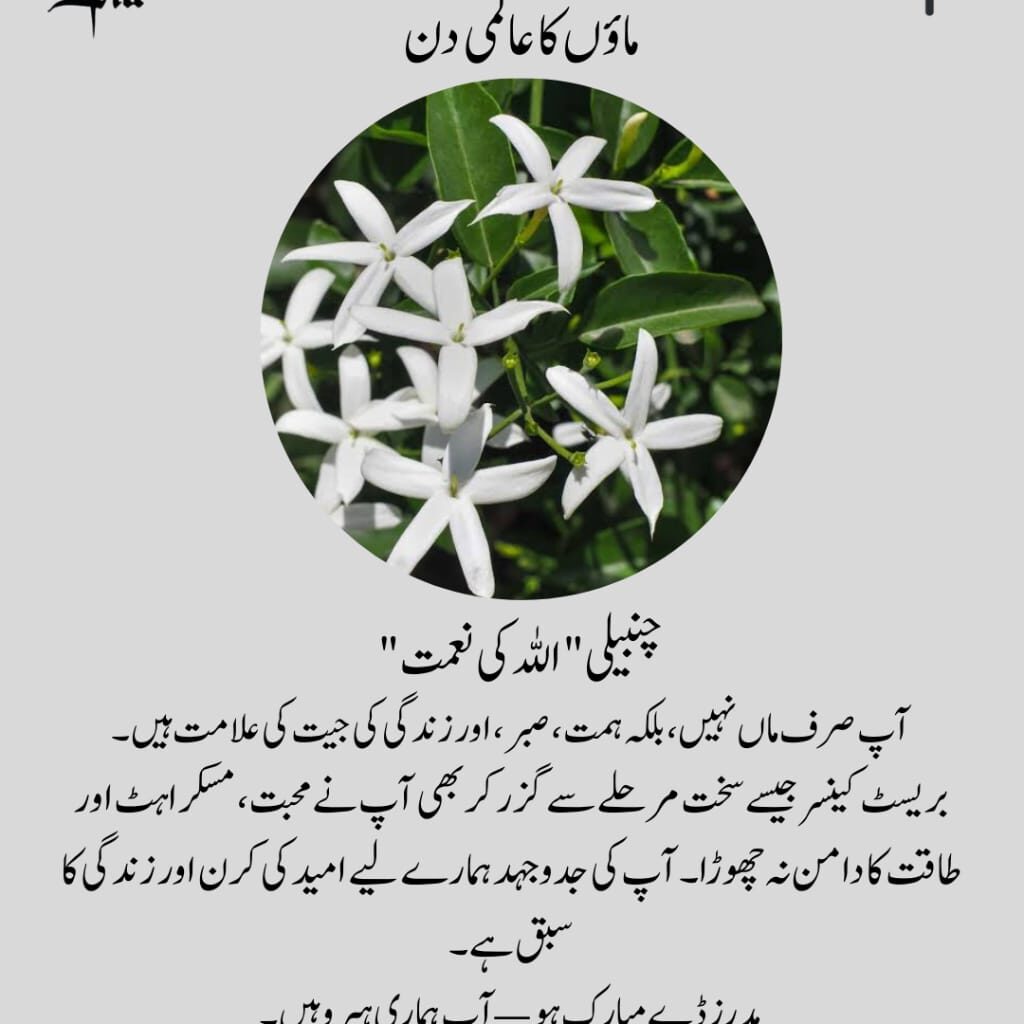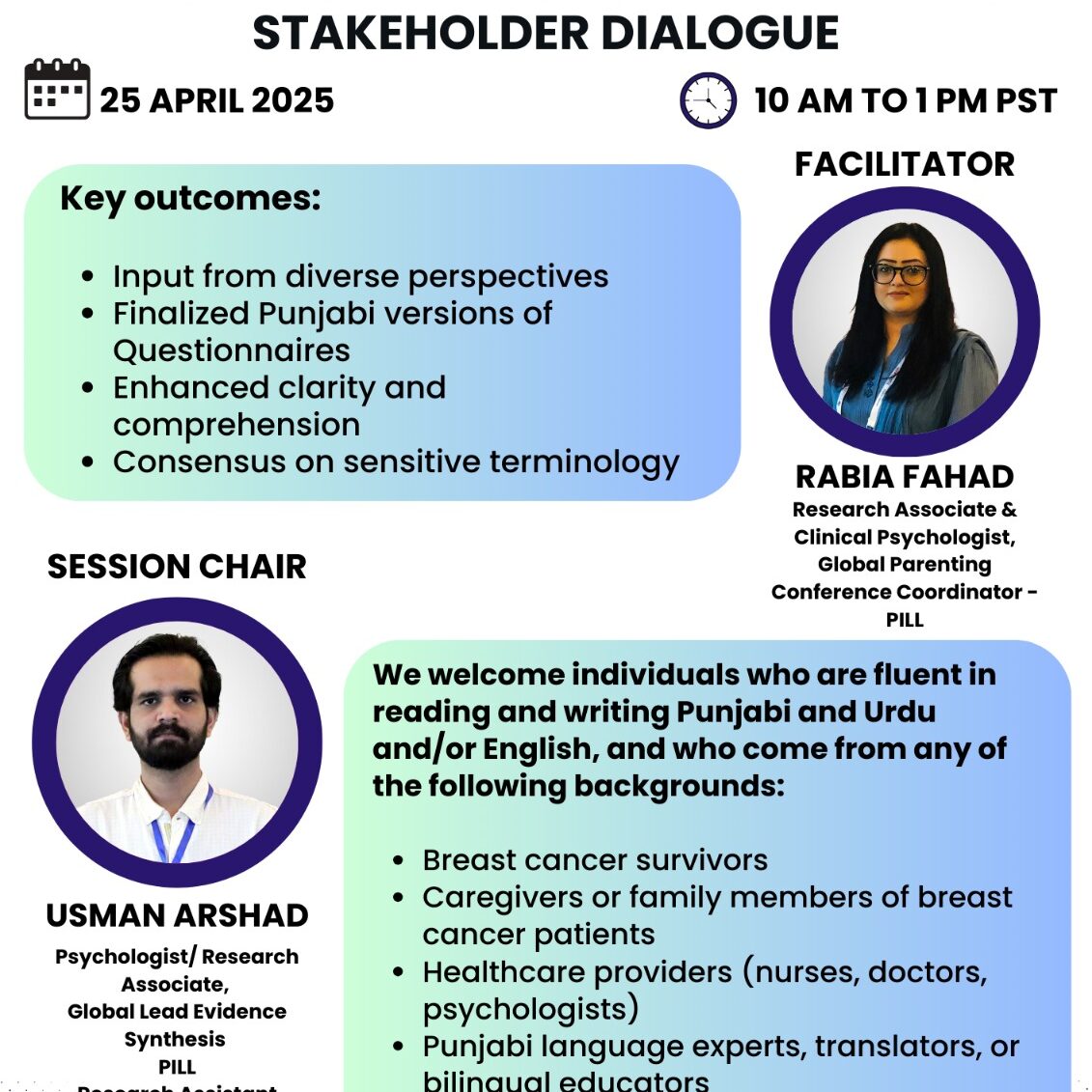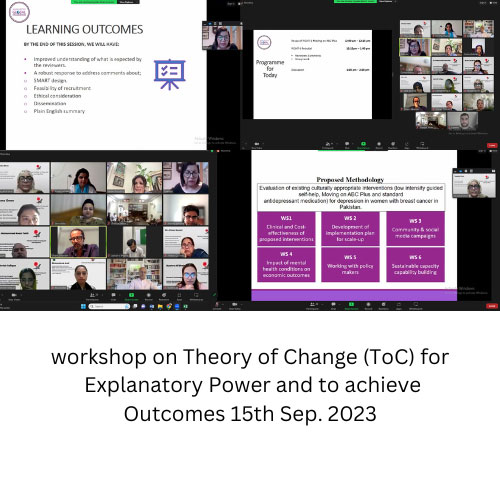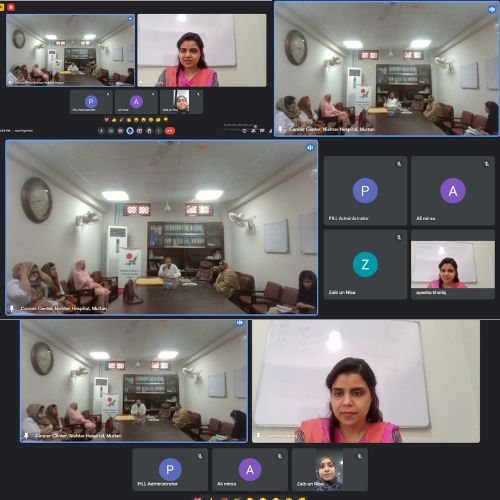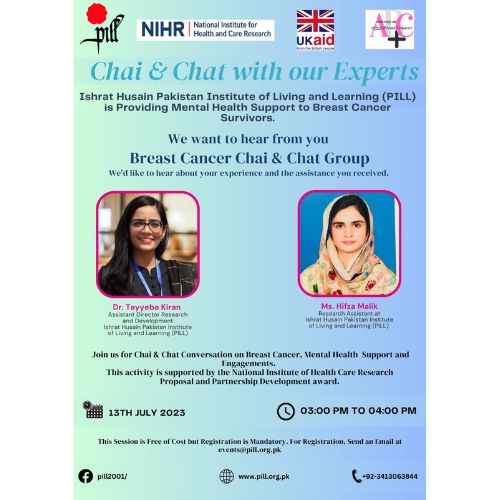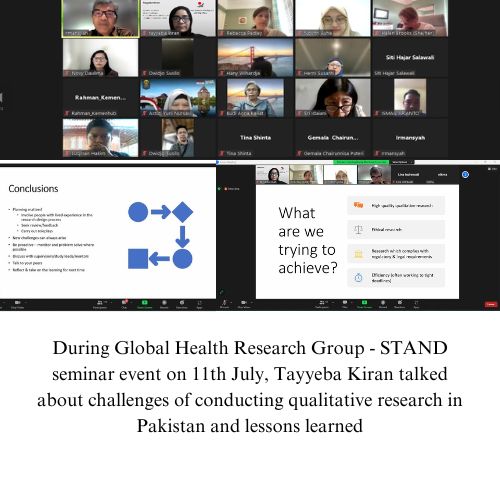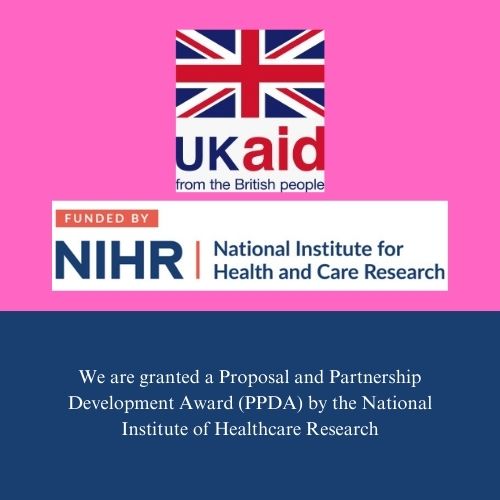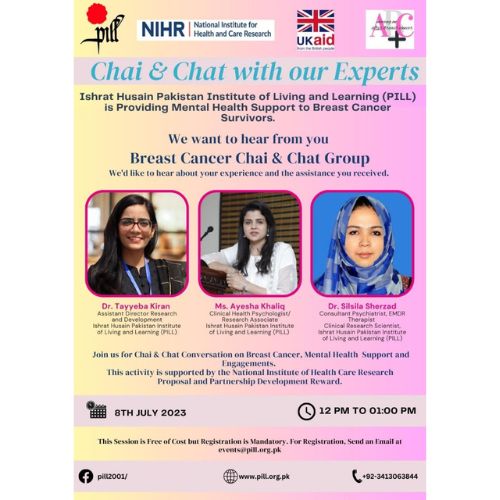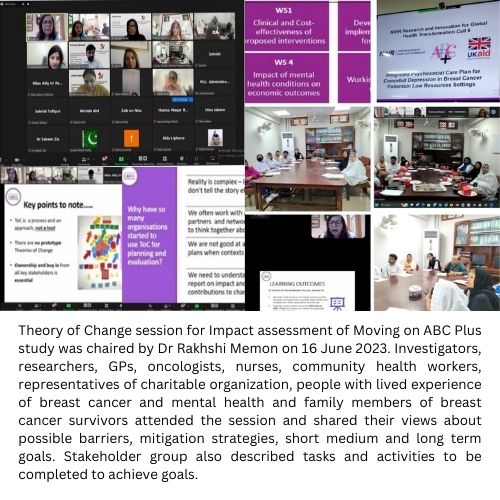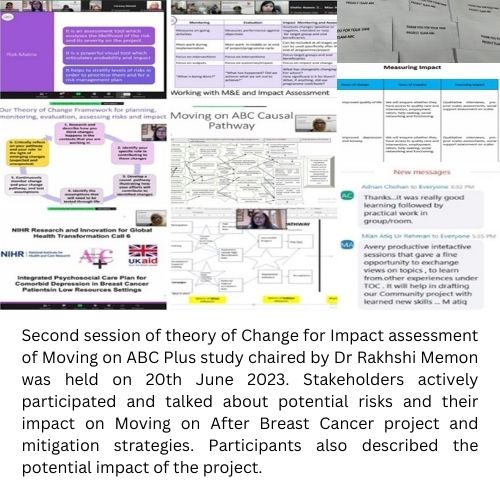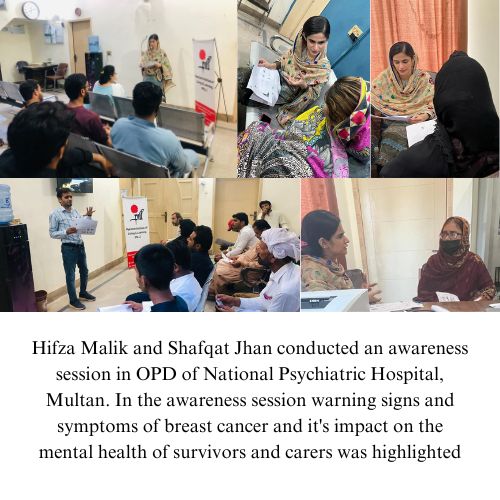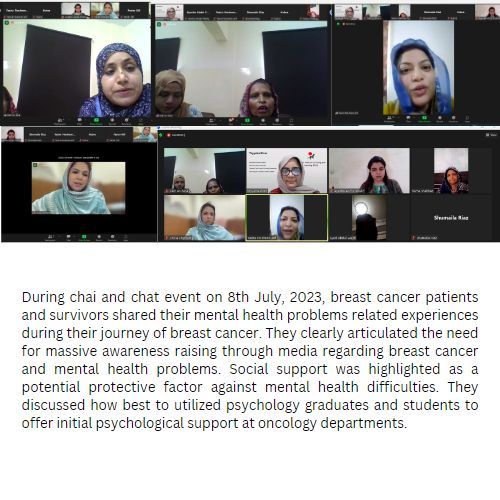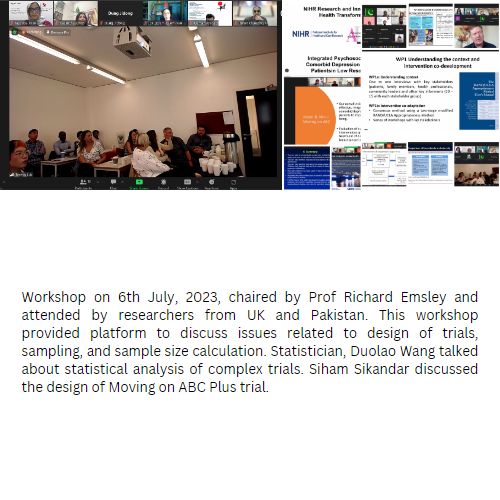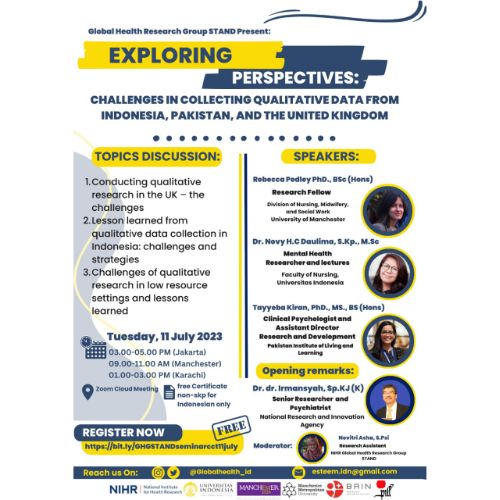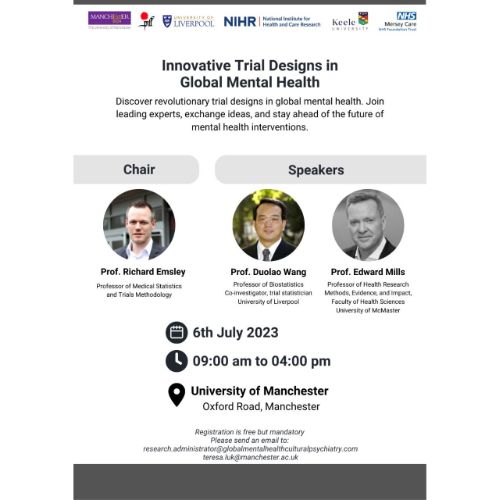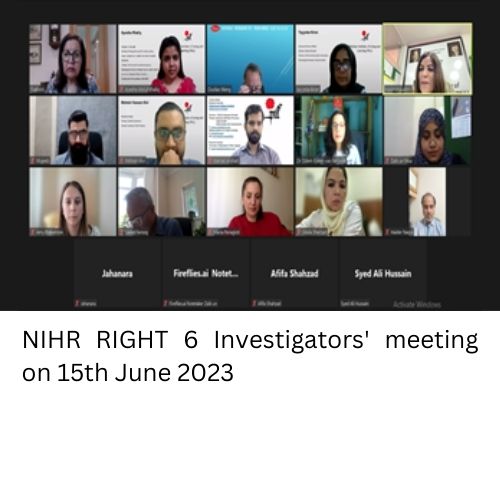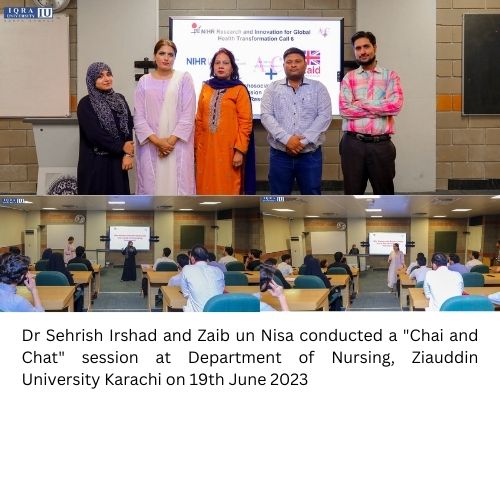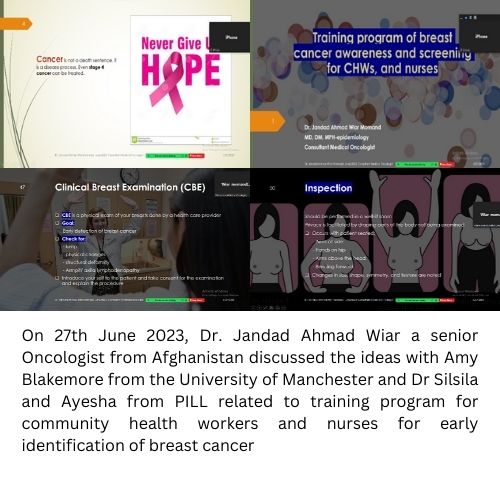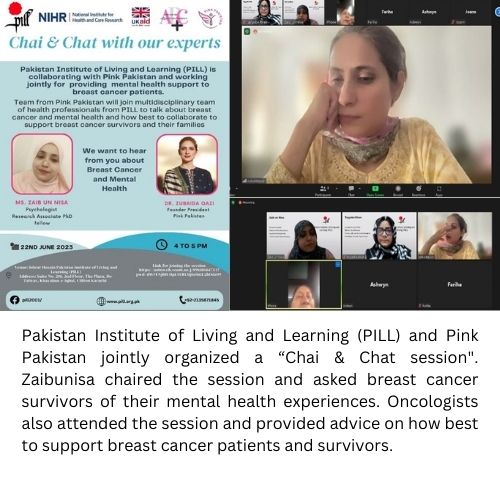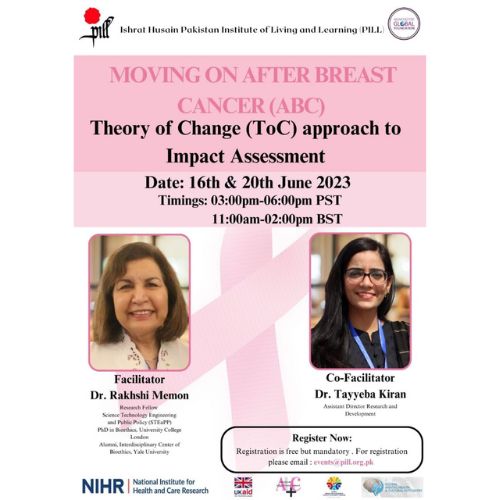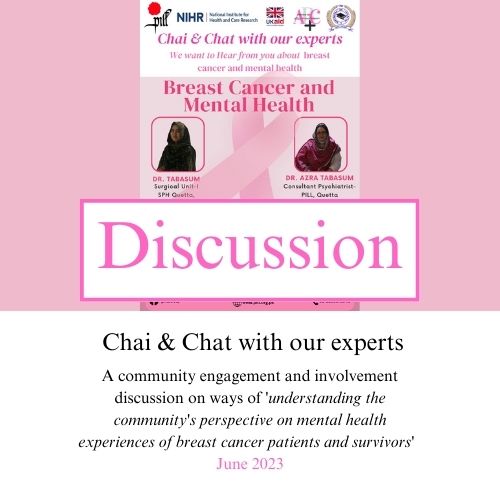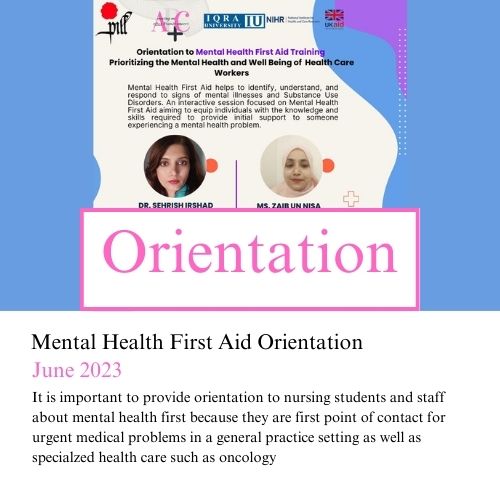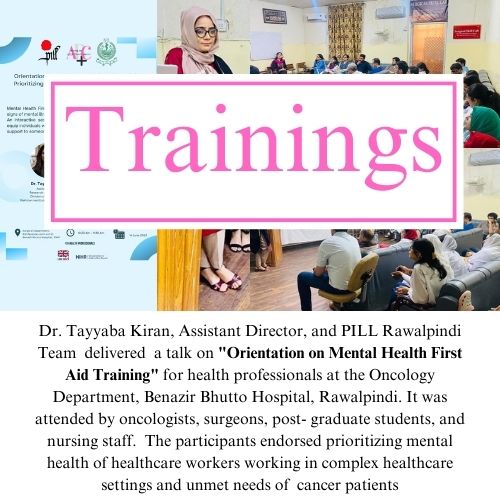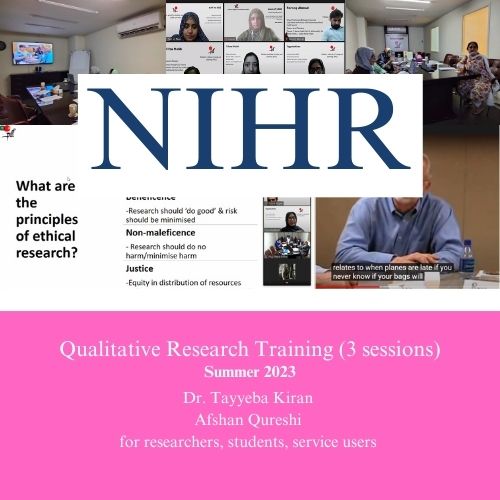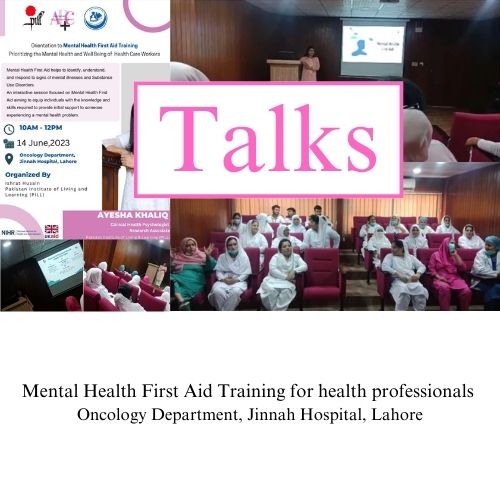
Meet our Lead Applicants and Co-applicants
Lead Applicants
Co-Applicants
Our Team
Early Career Researchers
Work Streams
Work Stream 1
The aim of WS 1 is to evaluate the efficacy of psychosocial interventions for women with breast cancer who suffer from depression. This study will take place across eight cities of Pakistan including Karachi, Hyderabad, Nawabshah, Lahore, Rawalpindi, Multan, Quetta, and Peshawar. Women will be approached in hospitals and community settings.
Participant age 18 and above, who have completed initial breast cancer treatment and having depression will be invited to participate. In this study participants will undergo into three phases of interventions based on their response to the intervention.
In phase 1 participants will be categorized into either Enhanced Treatment as Usual (the usual care they are receiving from health professionals) or a guided self-help intervention called “Moving on After Breast Cancer” (ABC). After six weeks, participants in the ABC arm will be assessed for their depressive symptoms.
Non- responders will be re-categorized in phase 2 into either continued guided self-help ABC intervention or a cognitive behavioral therapy (CBT) based intervention called “Moving on ABC Plus.
” In phase 3 non-responders from Moving on ABC Plus group, will either continue Moving on ABC Plus or receive additional antidepressant therapy. The guided self-help Moving on ABC intervention uses culturally adapted CBT approach, focusing on self-help through guided sessions by community health workers.
The Moving on ABC Plus is an integrated approach based on CBT for depression and offers practical support and advice on life after breast cancer, managing difficulties and social relationships and teach mindfulness skills. Moving on ABC plus is a therapist delivered intervention. The primary outcome of this study is the improvement of depression, at 48 weeks post intervention. Secondary outcomes include improvement in anxiety, quality of life, self-esteem, and social support.
Work Stream 2 – Co-developing, evaluating and enabling implementation, scale up and sustainability
Maximizing existing knowledge
We will combine and analyze data from previous studies that evaluated our proposed intervention to see what we can learn about how best to deliver Moving on ABC. We already spoken to 15 depressed breast cancer survivors before they used the intervention, 17 survivors after they used the intervention, and 12 family members about their experiences. By re-examining this data, we aim to gain a deeper understanding of their experiences, how the psychological intervention affected them and how we might deliver this in the best possible way. This will help us in determining how our intervention will be perceived, what will be the local setting in which interventions will be delivered, who will be delivering and who will receive the interventions and the process of implementation.
Co-designing an implementation strategy
We will host a one-day workshop and gather a group of diverse people for a day to decide on the best ways to implement our intervention that fits our community in a collaborative way. If we notice that certain perspectives or types of participants are missing, we’ll invite those who we have collaborated before, and ask them to recommend others they think should join. We will also invite community and religious leaders, health and education professionals and those involved in policy-making at national and provincial levels.
Process evaluation
We will work collaboratively with patients and community members and will find patterns or ideas that naturally emerge, creating overarching ideas based on that analysis. This analysis will enable us to understand key facilitators, lessons learned and barriers to implementing such intervention in our study sites – and make changes accordingly. We’ll create schedules, in Urdu, for interviews and focus groups that can be done online or in person. We’ll mix our findings with proven concepts to get a well-rounded understanding. This will help us identify the key factors that are essential for making sure our new intervention is adopted and maintained over time.
Work Stream 3 – Community and Social Media Campaign for prevention and early identification of breast cancer
In this work-stream, we will create a breast cancer prevention program using the COM-B Behavior Change Model, which focuses on three areas. Capability which include person’s mental and physical ability to act. Opportunity which include external factors that support or block the action and Motivation which include thoughts and automatic responses that drive a person to act. These three areas work together to shape behavior. The objectives include increasing awareness of breast cancer risk factors and preventive measures through a multi-model media campaign, promoting regular breast self-examinations, addressing cultural misconceptions, and evaluating the campaign’s effectiveness in improving communication about cancer awareness and treatment. A mixed-methods approach will engage active social media users aged 18 to 65, guiding the campaign across platforms like Facebook, Twitter, and Instagram. The initiative will co-produce content with 30 participants, including stakeholders and survivors, to develop interaction and impactful narratives.
Our campaign will gather data from social media metrics (views, engagement), Google Analytics, and user surveys. Impact stories will direct the campaign’s messaging for long-term sustainability. The content will be culturally tailored, translated, and aligned with the study’s objectives. A triangulation approach will integrate multiple data sources, and statistical analysis will assess changes in participants’ behaviour, capabilities, and motivations. Co-design courses with stakeholders will provide additional qualitative insights. Co-design is a participatory method to designing solutions that involves treating community members as equal partners. Especially in the public sector, co-design is a proven method of creative practice. Four principles effectively support co-design which includes: share power, use participatory means, prioritise relationships, and build capability.
There some campaigns already exist in Pakistan that encourage early detection through advocacy, free screenings, and awareness-raising events.
Work Stream 4
Estimating impact of mental health conditions on economic outcomes
Mental health can have impact on the economic outcomes, this work stream is design to estimate it. Economic outcomes are measured by employment status, income, number of working hours per day and wage per day, while other household characteristics are also considered in the study model. There are three phases in which psycho-social and pharmacological interventions will be delivered to breast cancer survivors with comorbid depression. Initially, economic outcomes are assessed at phase 1 to observe improvements in correlation with mental health progress. Mental health of the participants will be measured by Hamilton Rating Scale for Depression (HRSD). Those having value less than or equal to seven will be considered as remitters after the intervention. The study progresses through phase 2 and 3 for participants who do not achieve remission. Economic outcomes will be measured at each subsequent phase for both treatment and control group.
Impact of mental health on economic outcomes
We are studying how mental health, especially depression, can affect a person’s job, income, and work hours. This project focuses on breast cancer survivors who are also dealing with depression. By providing different types of support, we aim to see how improving their mental health can help them return to work, earn more, and improve their overall quality of life. The study will bring changes in their work and finances as their mental health improves through each stage of care.
Work Stream 5 – Engagement with Policy Makers/Parliamentarians
Therefore, the aim of this work package is to work in collaboration with health and academia, social enterprises, government (Ministry of Health) and non-government sectors, health system managers and hospital administrators voluntary organizations, persons with lived experience, and the community to co-produce knowledge that is relevant and useful for prevention and management of multiple long-term conditions (breast cancer and depression).
The objectives of this workstream include strengthening partnerships between policymakers and researchers to address depression among breast cancer survivors by assessing the current capacity of policymakers using the Seeking, Engaging with and Evaluating Research-(SEER) tool, educating policymakers on utilizing research for evidence-based health systems, meeting with policymakers at least twice a year to share findings, and ensuring the sustainability of an integrated psychosocial care plan and multimodal social media campaign. The policymakers’ participation in social media campaigns will improve early detection, risk assessment, and prevention. Series of collaborative workshops with the policy makers and key stakeholders will lead to the development of low-cost interventions and a ‘train-the-trainer’ programme for healthcare professionals to strengthen research and clinical expertise.
This collaboration focuses on enhancing mental health policies in Pakistan, working closely with the Health Services Academy and the Ministry of Health, Sindh. In addition to this, Pakistan Institute of Living and Learning (PILL) is collaborating with the leaders of Pakistan’s federal and provincial legislatures on Sustainable Development Goals (SDGs).
Work Stream 6 – Capacity Building in Research and Clinical Practice
The work-stream aims to build research capacity and capability in designing and conducting clinical trials in low- and middle-income countries (LMICs), with a focus on psychosocial interventions and care planning for depression and breast cancer. Within this WS we want to advance the use of innovative trial designs in global mental health research, ensuring trials are effective and locally relevant. The training programme will include introducing mental health research methods to early career researchers through certificate (50 students per year) and diploma (20 students per year). We will develop and deliver training in psychosocial interventions and care planning for therapists and supervisors working with depressed breast cancer survivors. In addition, using the train-the-trainer approach, we will train community health workers, nurses, and general practitioners in the assessment and early detection of breast cancer to improve research capacity in Pakistan. Our partner from Afghanistan, Dr Jandad, is supporting us in developing curriculum for this training. One very exciting output from this WS would be to enroll 6 PhD and 10 MPhil students to research oncology and mental health, focusing on breast cancer markers, psychosocial interventions, and the social impact of cancer, addressing health inequalities in LMICs like Pakistan.
Work Stream 7 – Development of a Standardized Breast Cancer Registry in Pakistan
Objective
To develop a standardized breast cancer registry in Pakistan that aligns with the World Health Organization’s (WHO) global registry model. This initiative will involve embedding WHO cancer registry variables into existing cancer registries and conducting a pilot test of the standardized registry across Sindh province.
Why It Is Needed
Currently, Pakistan lacks comprehensive registries to document breast cancer incidence and mortality rates, limiting effective national prevention efforts. The establishment of a national cancer registry is crucial, especially considering that only eight hospitals are currently collecting relevant data. Inadequate documentation hinders our ability to track early management, assess patient outcomes, and implement targeted interventions.
Significance
The proposed breast cancer registry will serve multiple essential functions:
- Standardization: By using a “common language” in cancer registration, we can enhance coordination among healthcare providers and improve data accuracy.
- Government Support: The Sindh government’s endorsement and collaboration with the Pakistan Institute of Living and Learning (PILL) underscore the initiative’s importance in addressing breast cancer.
- Sustainability Assessment: The registry will enable us to evaluate the long-term effectiveness of ongoing interventions, including capacity-building initiatives and public awareness campaigns.
- Foundation for Future Research: Integrating this registry into existing systems will facilitate comprehensive data collection, ultimately leading to improved healthcare policies and cancer management strategies across Pakistan.
News of The Week
Integrated Psychosocial Care Programme for Breast Cancer Survivors
The PILL teams from Rawalpindi and Peshawar, working on the Integrated Psychosocial Care Programme for Breast Cancer Survivors with Comorbid Depression in LMICs (funded by NIHR – NIHR205561), attended three-day training on Outcome Assessments. The training was delivered by Dr. Siham Sikandar and Dr. Silsla Sherzad, and covered theoretical principles, detailed discussions on individual assessment items, and role plays. The third day was dedicated to training General Practitioners (GPs) on mhGAP and the use of antidepressants.
All Updates
Trainings and Workshops
Effective Supervsion by Prof. Zainab F. Zadeh
On March 8, 2025 an insightful session on ” Effective supervision” was conducted by Prof. Zainab F. Zadeh, Dr. Tayyeba Kiran and Mr. Aziz Ahmad. With the participation of 26 staff members, the session focused on exploring key aspects such as the roles and responsibilities of supervisors and supervisees, different types of supervision, managing power dynamics, and fostering accountability and professional development. Through engaging discussions, and self-reflection exercises, the training provided a comprehensive understanding of effective supervision, emphasizing its role in creating a supportive and growth-oriented professional environment.
Upcoming ‘Introduction to Low-intensity CBT Intervention for anxiety and depression’ workshop
Workshop on Research Planning and Scientific Writing
Rawalpindi Pill team participated in a one-day workshop on Research Planning and Scientific Writing, organized in collaboration with the Burns Unit PIMS Islamabad. The workshop aimed to enhance participants’ skills in designing research studies, drafting scientific manuscripts, and adopting evidence-based practices.At the end of the training, the team was honored with certificates presented by the hosting organization, BURNCON.
Training Attendees Explore Innovative Approaches to Supporting Patients with Chronic Illness
Prof Zainab F Zadeh and Dr Tayyeba Kiran attended one day training on “Working with long-term physical illness and medically unexplained symptoms: Help your patients reclaim their lives from illness, disability, pain or fatigue” facilitated by Professor Chris Williams, Fellow Royal College of Psychiatrists and Hon Fellow BABCP, on 6th November. During the session Dr Kiran and Prof Zadeh discussed the opportunity to co-adapt training material to incorporate this into the high intensity CBT intervention manual for breast cancer survivors with comorbid depression in Pakistan (NIHR205561)
Deductive Coding Session
Second session facilitated by Dr Helen Brooks on Deductive Coding in Framework Analysis
Framework Analysis Training Session: A Collaborative Learning Experience
An interactive training session on the Framework Analysis was facilitated by Helen Brooks (University of Manchester), work-stream 2 co-lead on our project “Integrated Psychosocial Care Plan for Comorbid Depression in Breast Cancer Patients in Low Resources Settings – NIHR205561”. The early career researchers got the opportunity to ask questions related to inductive coding, situations where Framework analysis is most suitable, and Gale’s approach.
Clinical and Cost-Effectiveness Discussion: ‘Moving on ABC’ Interventions
An interactive session was conducted with the ‘Moving on ABC’ team regarding the orientation session of WS1. The session focused on determining the clinical and cost-effectiveness of three interventions: 1) low-intensity guided self-help, 2) Moving on ABC Plus, and 3) Moving on ABC Plus combined with antidepressants.”
GDPR Training Session Conducted for NIHR RIGHT 6 Research Team
A training session was conducted by Dr Hyder Abbas on General Data Protection Regulations (GDPR) for research team working on the NIHR RIGHT 6 funded programme “Integrated Psychosocial Care Plan for Comorbid Depression in Breast Cancer Patients in Low Resources Settings – NIHR205561”. Dr Abbas has worked over 20 years in Hospital and in Family Medicine England. He has been a clinical governance and training lead in his practice and for local Health authorities. During the session, research team got opportunities to discuss topics such as breach of confidentiality, rights of participants to rectify information provided by them during research, data transfer etc.
CEI Meeting
An introductory meeting to plan CEI work for Moving on ABC in Sri Lanka
Moving on ABC Training
Prof Zainab F Zadeh and Dr Tayyeba Kiran attended one day interactive training programme on “15 minute CBT for use in clinical teams 2024: a 5 areas approach for use with adult and older adult patients” by Prof Christopher Williams (University of Glasgow, Five Areas Limited) on 16th October 2024. This was an excellent opportunity to brainstorm ideas on refinement of low intensity guided self-help intervention for depressed breast cancer survivors in NIHR RIGHT 6 funded project “Integrated Psychosocial Care Plan for Comorbid Depression in Breast Cancer Patients in Low Resources Settings” (NIHR205561)
PILL Team Visit
PILL team visit to “Brain and Neuroscience Center” Nepal with Dr. Rishav Koirala. During the meeting a low intensity and integrated care training plan for early career researchers and community health workers around depression and breast cancer was discussed.
Our Press Releases
Flyers
Our Achievements
Supporting Breast Cancer Survivors through
Training Program to improve their Mental Health and Awareness about Breast Cancer
Why this research study was needed
Breast cancer is a life-long disease and is the most common cancer across the world. There are many research studies that show how cancer care has improved over the years and how it allows patients to live longer. However, breast cancer is still the top cause of cancer–related deaths in low income countries. There are several risk factors that can affect a person with breast cancer such as mental health problems that persist even after completion of treatment. Depression and anxiety are common in breast cancer survivors. This coexistence of these mental health problems with breast cancer makes it a Multiple Long-Term Condition (MLTC) (presence of two or more diseases). These MLTCs lead to:
- Declining
- Poor quality of life of these individuals and their families.
- Increased healthcare costs.
- Increased death rate.
What we did
Therefore, we conducted a research study of psychosocial training for breast cancer survivors who completed their cancer treatment and are currently experiencing depression and or anxiety (n=354) in Pakistan. These breast cancer survivors were approached and recruited from different healthcare facilities in Karachi, Lahore, Multan and Hyderabad. Trained researchers provided information about the study to all the breast cancer survivors in the healthcare facilities. Those who met the study’s criteria were provided with an information leaflet that included details of the steps involved in the study. The research team contacted them again after two days and asked for their consent to participate in the research study. Those who provided consent met the research team again and were assessed for their symptoms of depression, anxiety, cancer-related fatigue, their quality of life, and the level of disturbing thoughts and self-esteem.
After completion of this first assessment session, the research team assigned a unique identification number to each of the participants. These identification numbers were then sent to another research office where a trained professional (who is not involved in this study) assigned these participants to either of the two groups. One group of participants received the study’s training program for 4 months along with their routine care and this group was called the Training Group. The other group did not receive training and continued with their routine care. The random assignment of the groups was done by computer.
Those breast cancer survivors who received training met a researcher for 4 months and received 12 training sessions at home. During this training program, the researcher provided them with information about breast cancer, symptoms of depression and anxiety, relaxation exercises, guidance on how to take care of themselves, discussion on improving interpersonal relationships and steps to avoid the relapse of breast cancer etc.
All the research participants, regardless of their group, were approached by the research team again, for another assessment session at 4th month after their first assessment. The assessment was repeated in the 6th month.
Our findings
At the end of the study, the research team compared the scores of two groups and found that those who received training had less scores on depression and anxiety on both assessment points (4 and 6-month). They also reported less cancer-related fatigue, more improvement in quality of life and self-esteem compared to those who only received routine care. These are important findings not only for the participants and researchers but also for other stakeholders such as doctors, nurses, members of the Department of Health etc.



